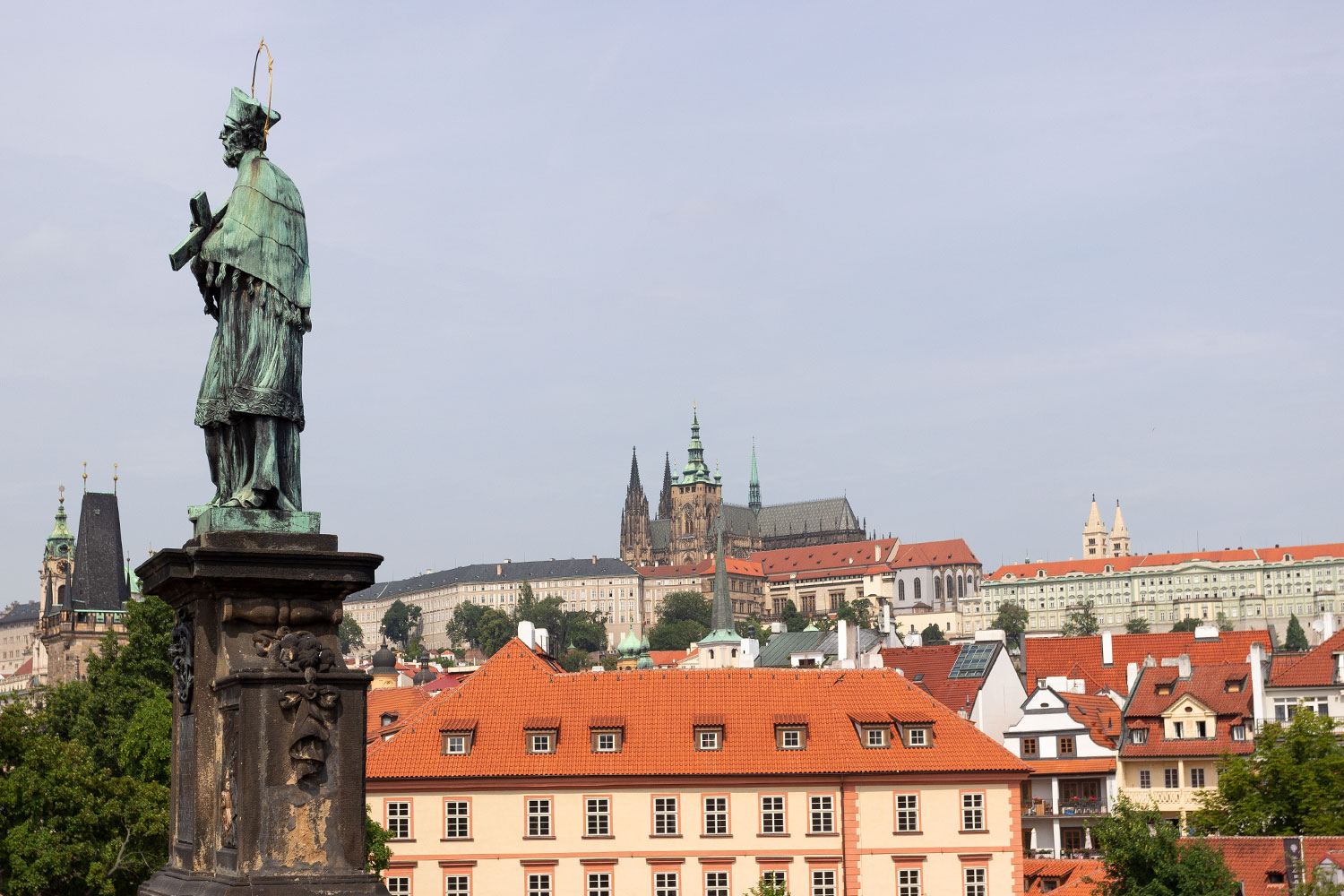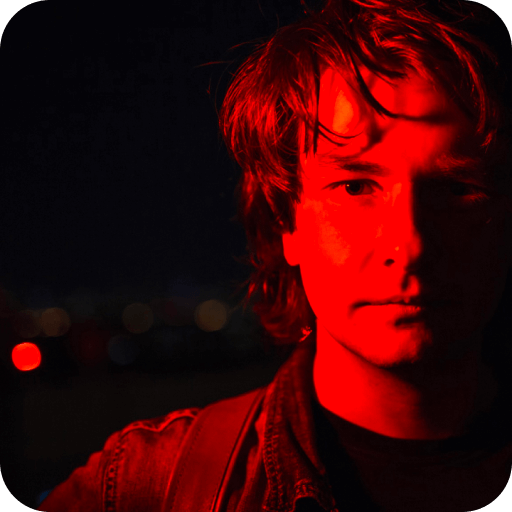Prague, which has nothing to do with it
I never thought I would visit Prague twice.
Czech Republic always seemed to me like the worst embodiment of Russian tourism, and I only planned to stop in this country while traveling from one point of the planet to another.
Everything changed due to the Russian “mad printer” that had been working tirelessly for several years and finally suffered a new order: to close American embassies. Now, in order to get a visa to the US, one either had to stand in line for a whole year in Moscow or submit documents from another country.
That’s when forgotten Czechia, which was a hole on my map of Europe, cheap and accessible, with beer and trdelnik, came in handy.
This story began two years ago, but it has not ended yet and will not end soon. It seems to be the “foot of the peak” of a long plot. I am writing this story from my home, but mentally I am all over the world — because both I and the whole world are locked in the same prison called quarantine.
How did we end up here?
Shiitic cyberterrorist
I first visited America three years ago, but only traveled to California.
At that time, the country was still led by the kind-hearted Barack Obama, and there were no trade wars with China. Getting an American visa was already difficult at that time. For some reason, in my application, I mentioned that I worked as a virus analyst at Kaspersky Lab. It was a long time ago when I was studying at the institute. My hacking career didn’t last long — only six months. I worked three days a week while writing my thesis project. That was enough for American diplomats to see me as a potential enemy and send me for “administrative review”.
Such a procedure exists only in America. If you mention that you studied quantum physics, worked in a chemical laboratory, or engaged in computer security, a simple tourist becomes a threat and is sent for special screening that can last for several months.
At that time, the Americans screened me for exactly a month, after which they issued a visa with a stamp reminiscent of Hollywood TV shows about special agents: “Clearance received.” I went to California and came back, then headed to my favorite Middle East and wrote one of my best stories — about Iran. And now I wanted to go to America again, this time to New York and Washington.
At the Czech embassy, the American consul without much thought gave me a slap in the face: administrative review. Again.
This time, the country is led by Republican Trump, who dreams of building a wall with Mexico and isolating the country from the outside world. The new Trump’s DS-5535 form makes it difficult for professors and academics invited to symposiums to enter the country; delays the hiring of programmers and engineers for years; and causes students to miss deadlines for admission to universities. Educational institutions write petitions to Trump, but American bureaucracy is stronger than Soviet.
The story with Russian hackers who allegedly hacked Hillary Clinton’s correspondence added fuel to the fire. Since then, Washington has taken responsibility for the security of the state and started dealing with the crux of the problem — banning Kaspersky Anti-Virus.
The second step Trump took was to ban entry to America from dangerous countries, but as always, he confused Iran and Iraq. And the Czech consul, who had become obsessed with identifying Shiite terrorists, quickly put two and two together in his American mind when he saw me and my application: I worked at Kaspersky and had been to Iran.
So I was back on administrative review. I wonder how it goes? Specially paid people from Washington check Yandex News every day: will my name pop up in any cyber attacks by Imam Ali?
I left the embassy, and then a year and a half passed. The embassy responded: come for a visa, do you still want to go to the USA?
No, I want to go to Charles Bridge!
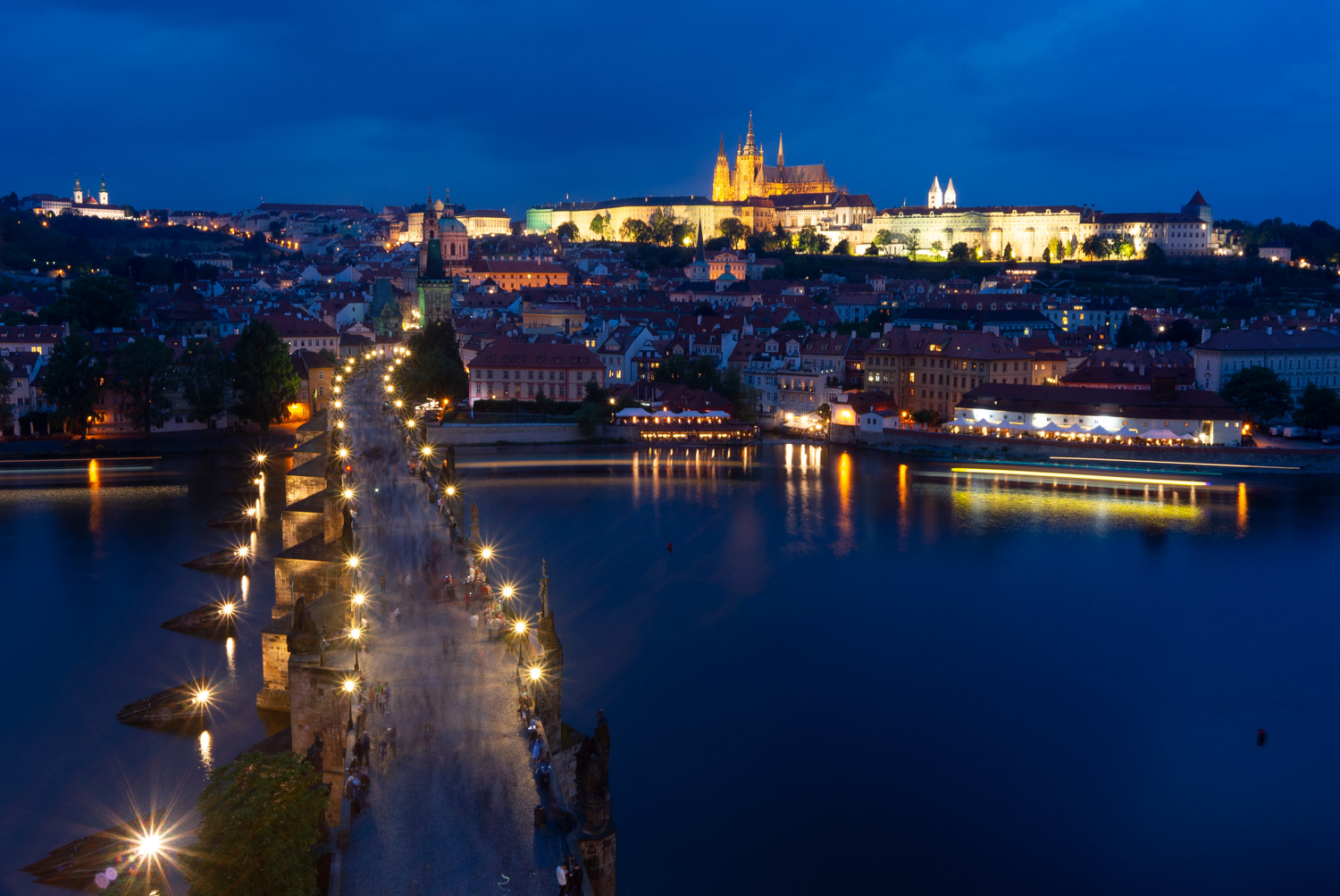
Coronavirus
If I lived in hotels, I wouldn’t have traveled so many countries — I wouldn’t have had enough money. That’s why I always stay in a hostel, with ten people in one room, but it’s good and in the city center.
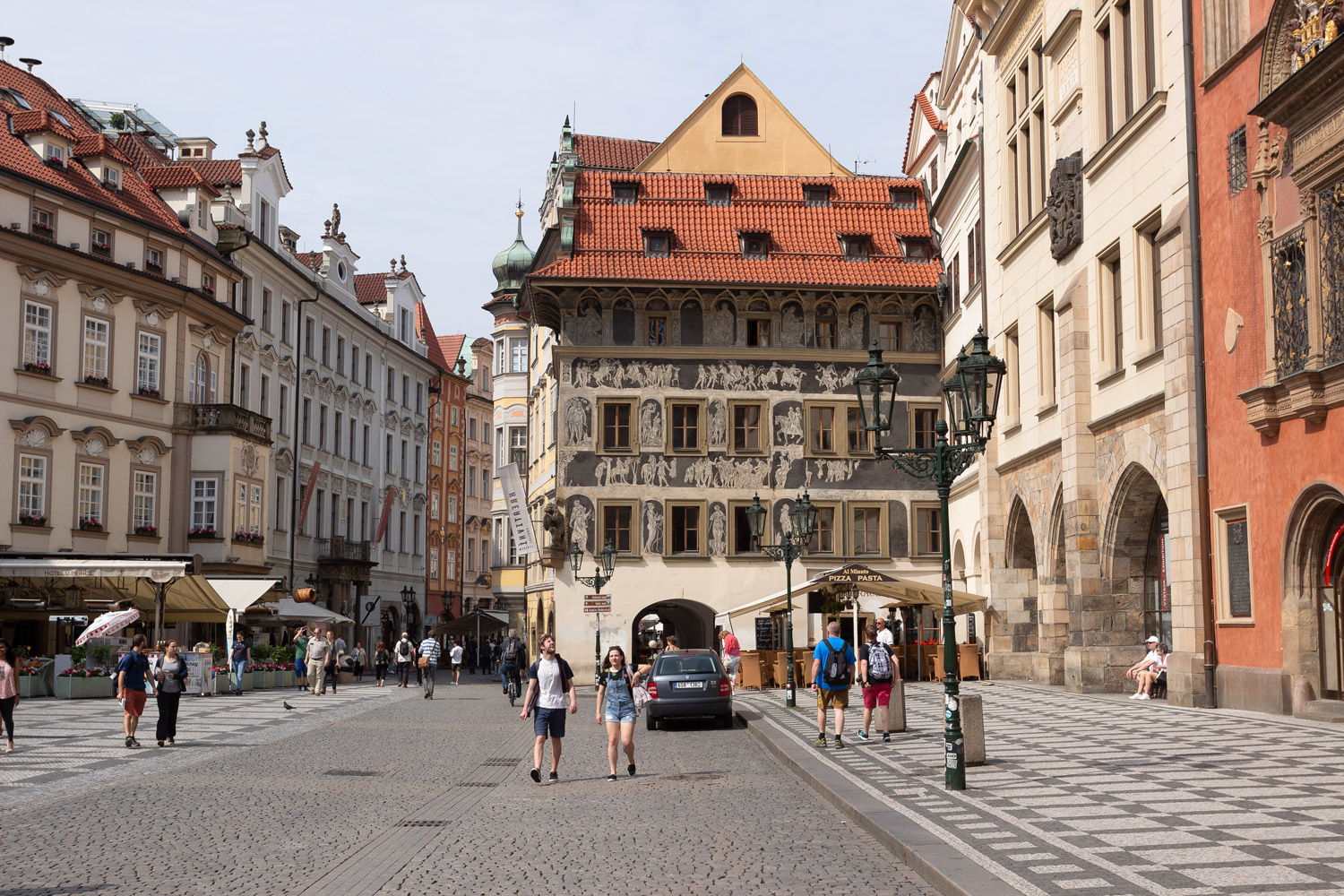
Tourists from different countries rent hostels. In the Prague hostel, there was one fifty-year-old American woman, five Brazilian teenagers, one Argentinean, two Chinese women, one Peruvian, as well as Italians, Ukrainians, English, and Norwegians. People changed, staying for two to three days. Only I stayed here for a week, observing the endless stream of people.
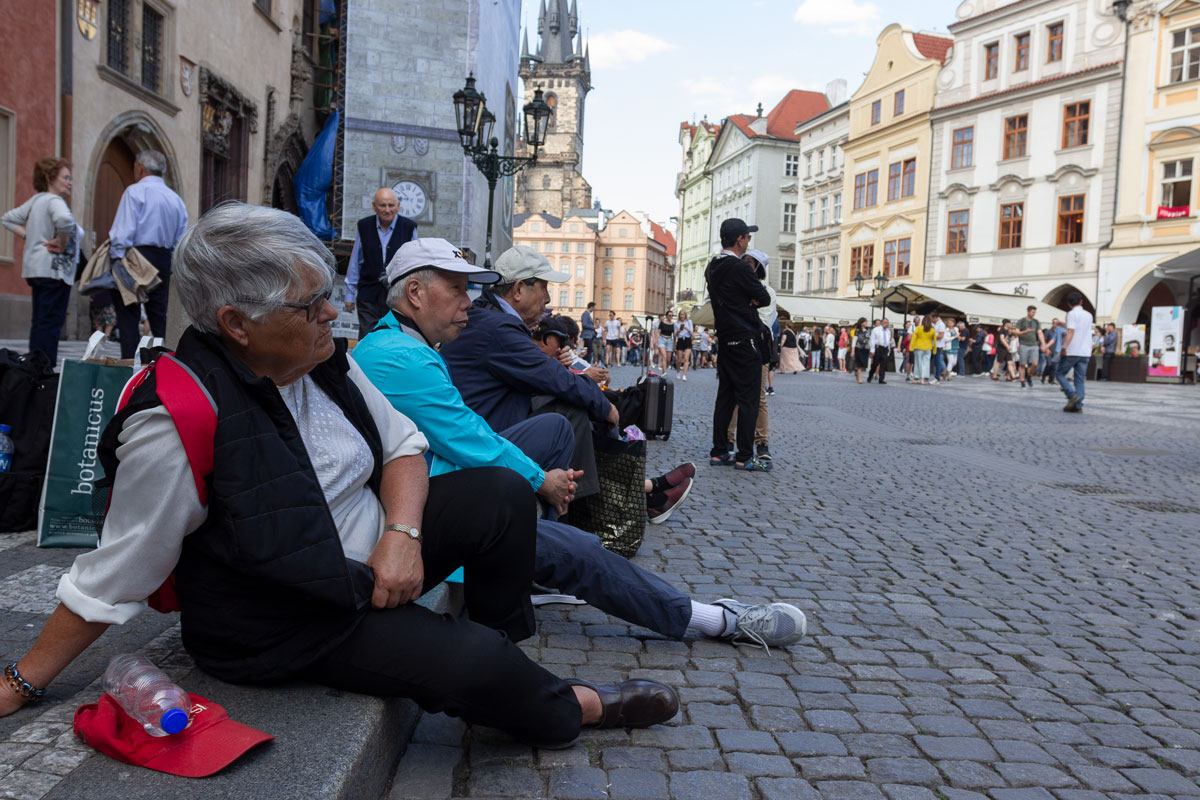
Went back to the American embassy. It turned out that they had no intention of giving me a visa. So, they simply asked me to fill out all the forms again and sent them back for review. They called me to the Czech Republic for this.
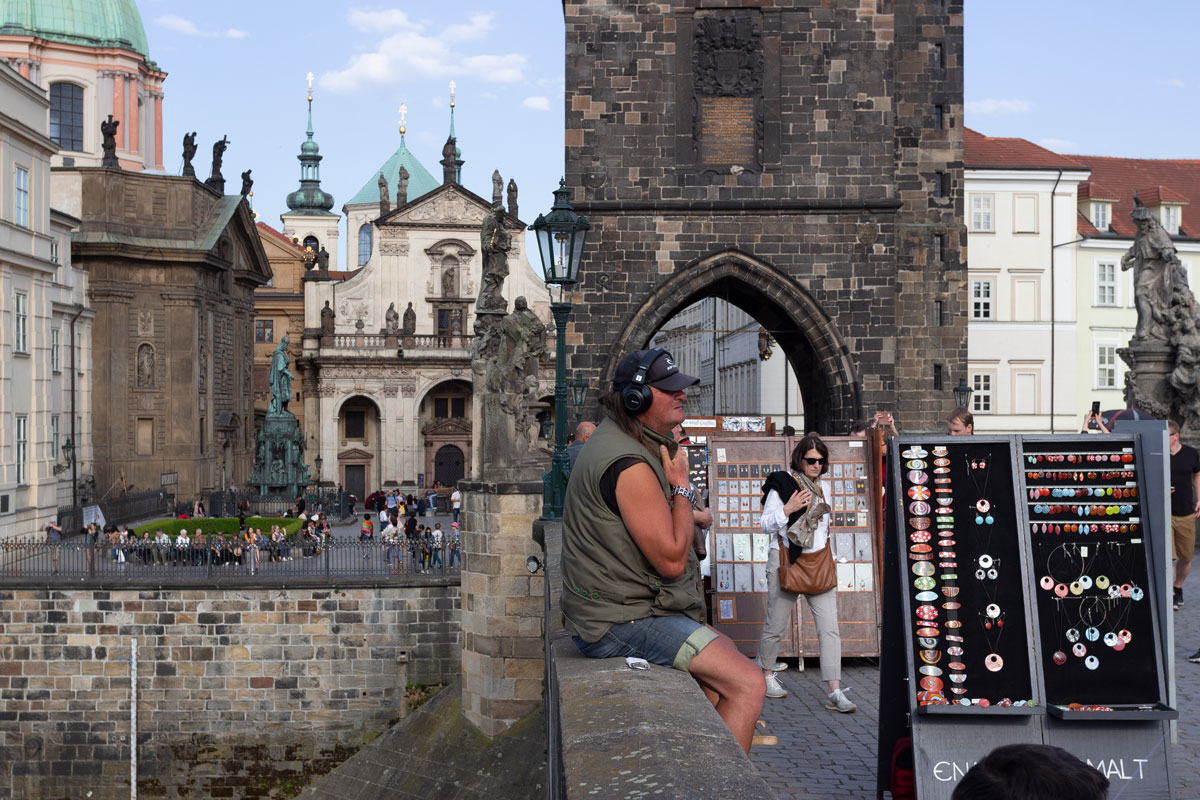
Fatigue set in. There was nothing to do in the city: it was January. I didn’t even bring my camera with me, all the photos were taken on my first trip.
However, there is nothing to do in Prague at any time of the year. The main attraction of the city is Charles Bridge, through which a continuous stream of people flows from one part of Prague to another.
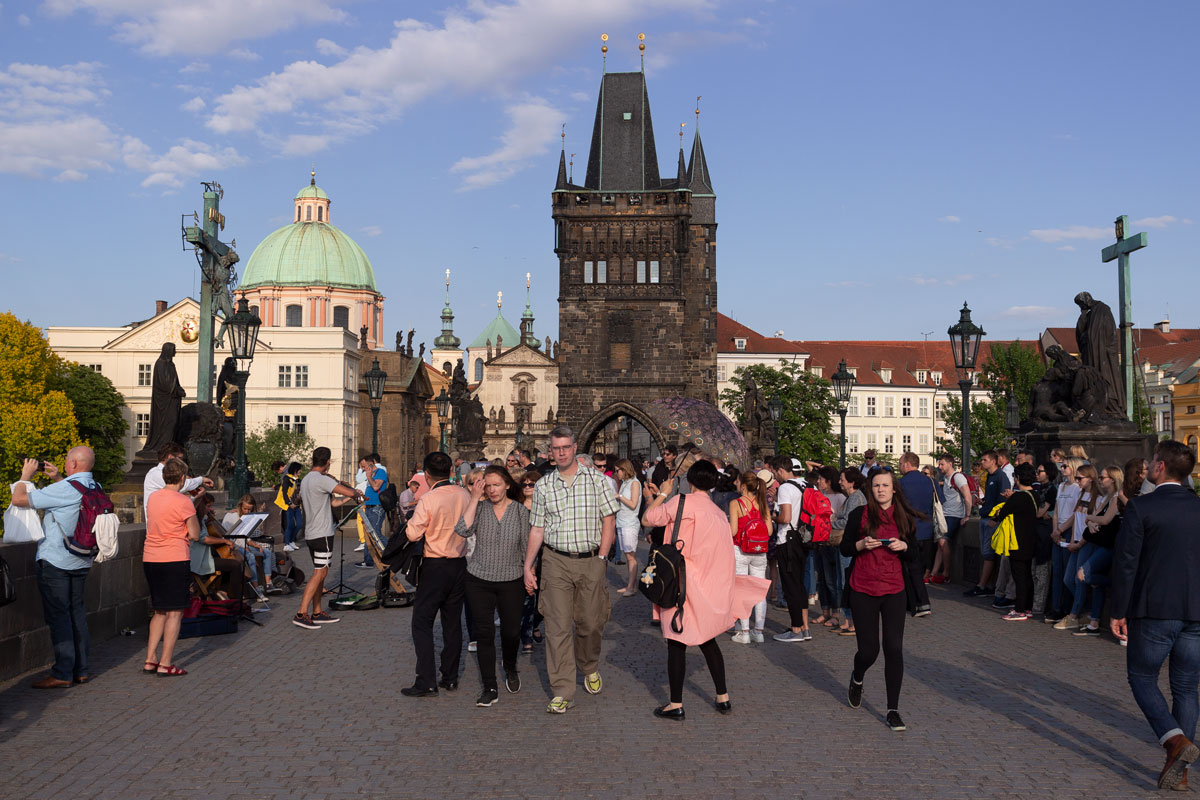
There are crosses and religious sculptures on the bridge. It seems that they threw some prophet into the river here. All of this is not very interesting to a cultured person.
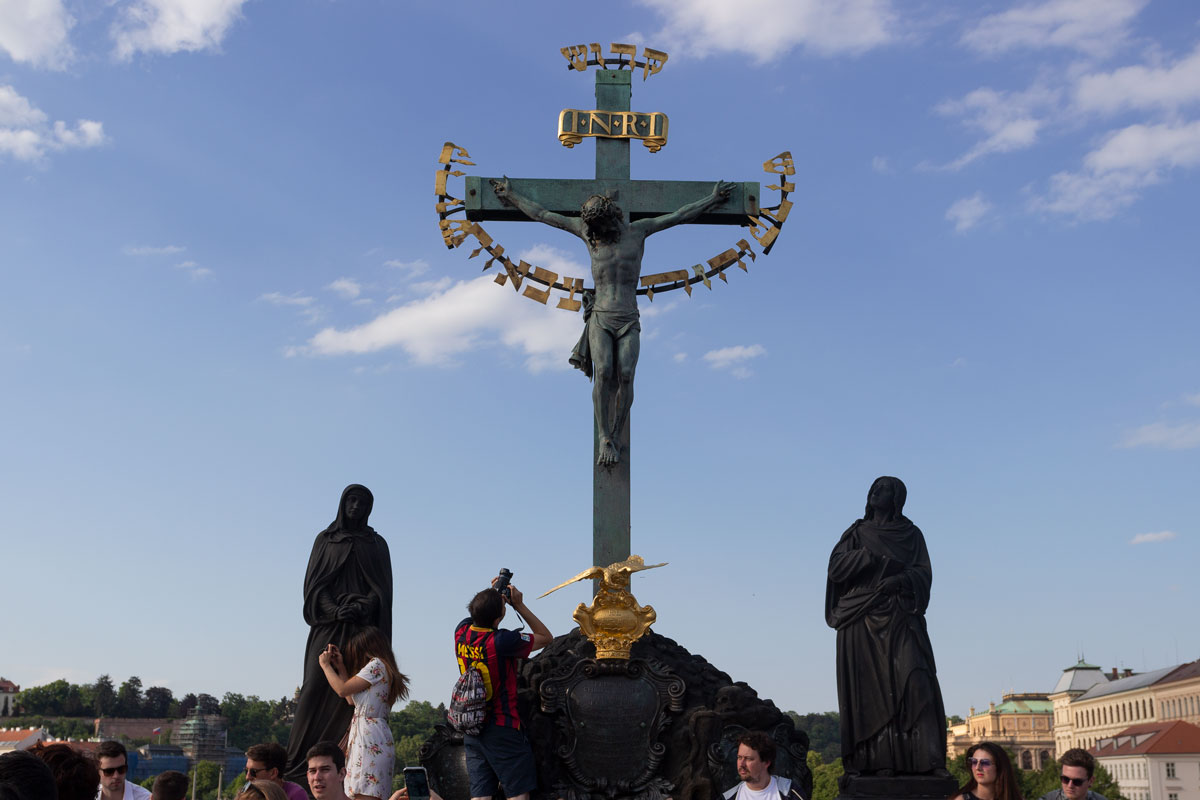
Boredom was intensifying. The hostel, which seemed good at first, became uncomfortable, and the stream of coughing, snoring, and farting people began to get on my nerves, and I lost sleep and appetite. At night, there was nothing to breathe in the room, and the windows couldn’t be opened — everyone would freeze immediately.
In an attempt to find something to do in empty January Prague, I collected discounts at clothing stores, ate endlessly, and even tried local beer, which for some reason seemed tasteless to me.
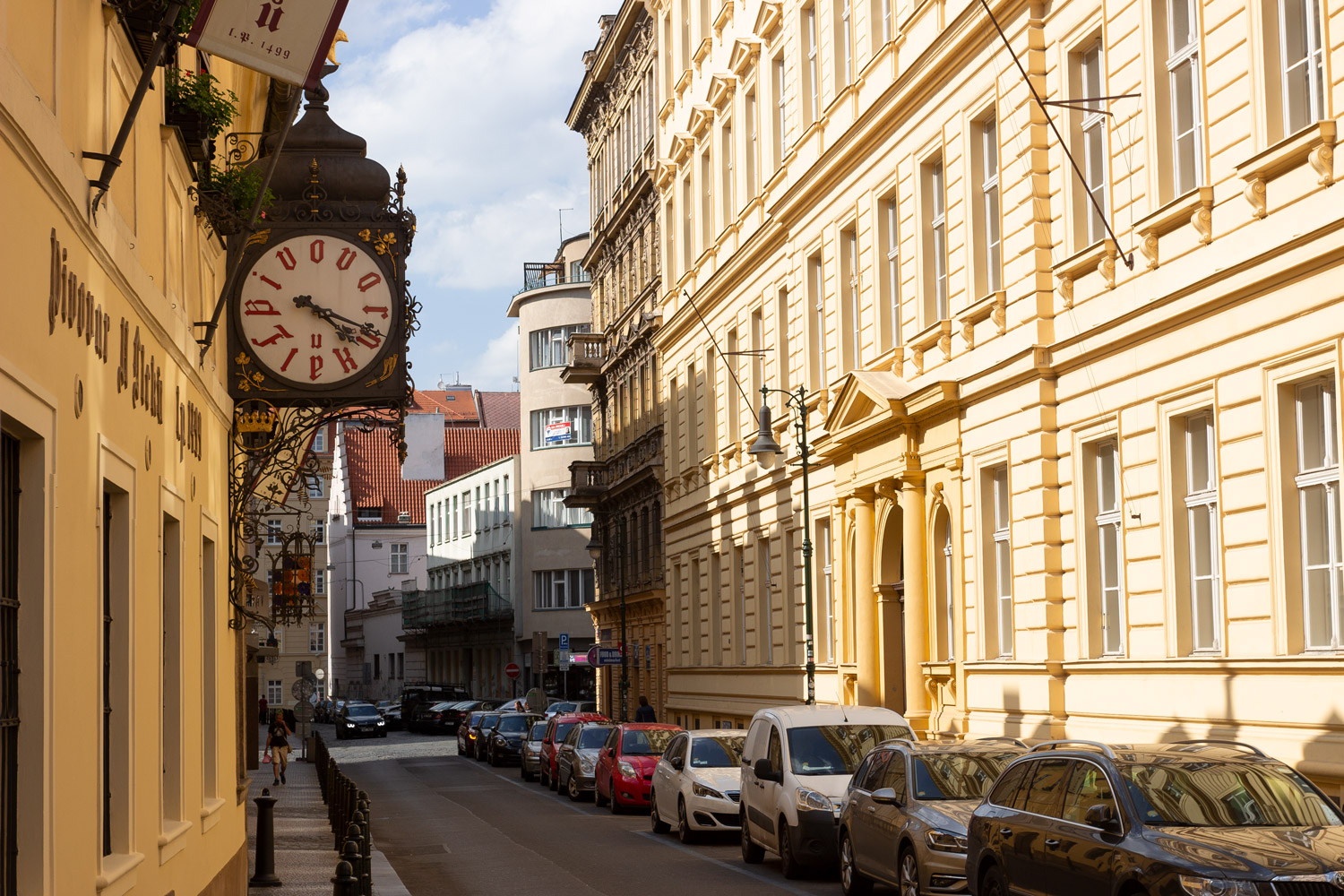
I couldn’t sleep at night. It was so stuffy because of the closed windows that I would throw off my blanket, after which I would instantly freeze, cover myself again, and then throw off the blanket again after a minute. My legs hurt from walking all over the city. Two Chinese women were lying on the neighboring bed coughing all night, but it wasn’t someone else’s cough that woke me up, it was my own moaning. Waking up in the middle of the night, I either tried to move to the Hilton or take the first flight home.
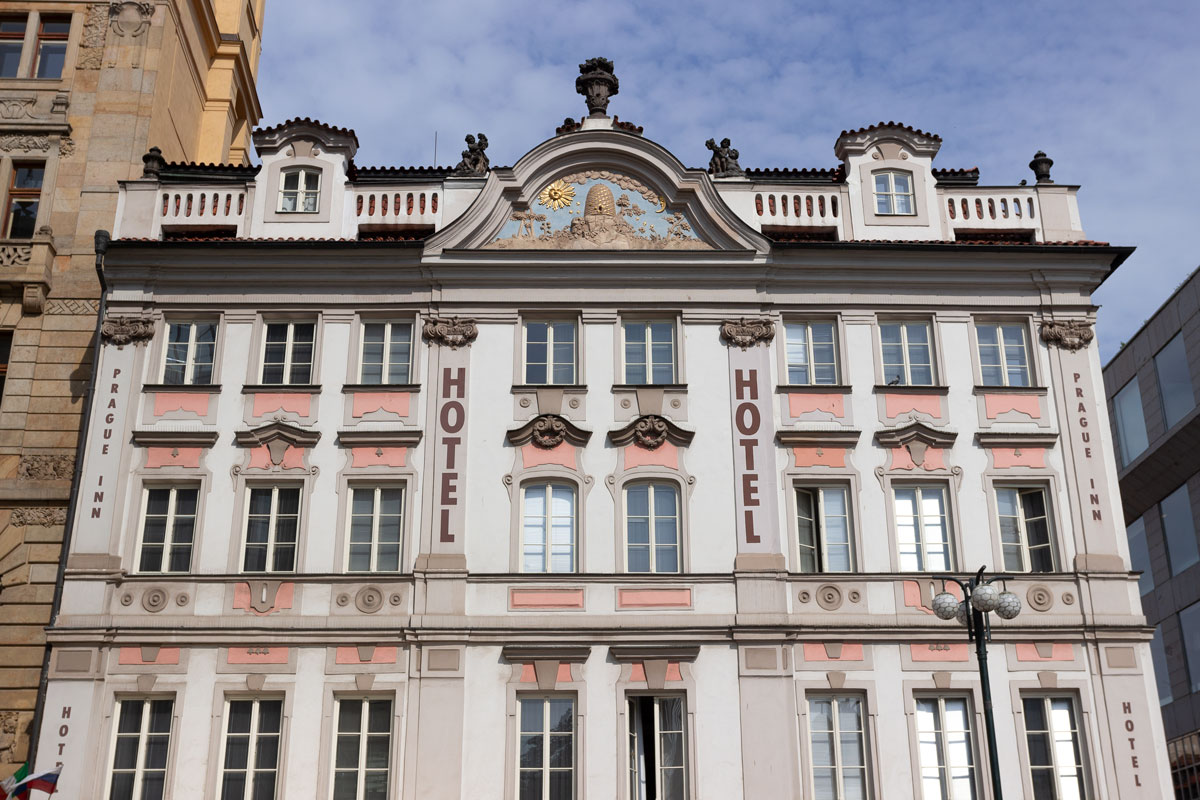
To pull myself together, I took some paracetamol, which slightly helped with the terrible headache, grabbed my laptop, and went out to the cool hallway, where I sat on a sofa, read books, and programmed until breakfast. Then I ate everything that was served at the buffet, went to an empty room, opened the windows wide, took some phenazepam under my tongue, and disconnected until the evening. That’s how my week in Prague went.
“- Haaaaa” — this sound that a choked person makes on their first breath after artificial respiration is difficult to convey in writing. Try saying “Haaaaa” without exhaling, but inhaling the sound “ha”.
On the last night, I almost choked in my sleep, abruptly waking up and jumping up with that sound coming from the depths of my throat. I pulled off the blanket, opened the bedside curtain, hung my head down at the edge of the bed, and began to breathe quickly and heavily. “How do they live here? Open the windows!” — was the only thought spinning in my head.
About five minutes later, I regained my composure a little, managed to get up and go out into the hallway. It was 2 am. The plane was leaving at 9 am. How would I even make it to the metro? My legs wouldn’t support me, I was tired, and out of breath like a smoker. Taxi? At the price of the entire hostel?
In four hours, I will gather my strength and somehow make it home, pumped up with coldrex and two packs of instant noodles. For another two weeks, I will be completely crushed by the trip, I will have an incessant dry cough and all-consuming fatigue.
I will forget about all of this in a series of other events and remember it only at the end of March, when Russia, like the rest of the world, will be quarantined.
Economic eclipse
Throughout the ages, astrologers have considered a solar eclipse as a harbinger of disaster. In economics, such a sign is the intersection of bond yield curves. Every time after this “economic eclipse,” a crisis follows. In August, the orbits of securities intersected again, and economists, like astrologers in ancient times, began to talk about the impending end of the world.
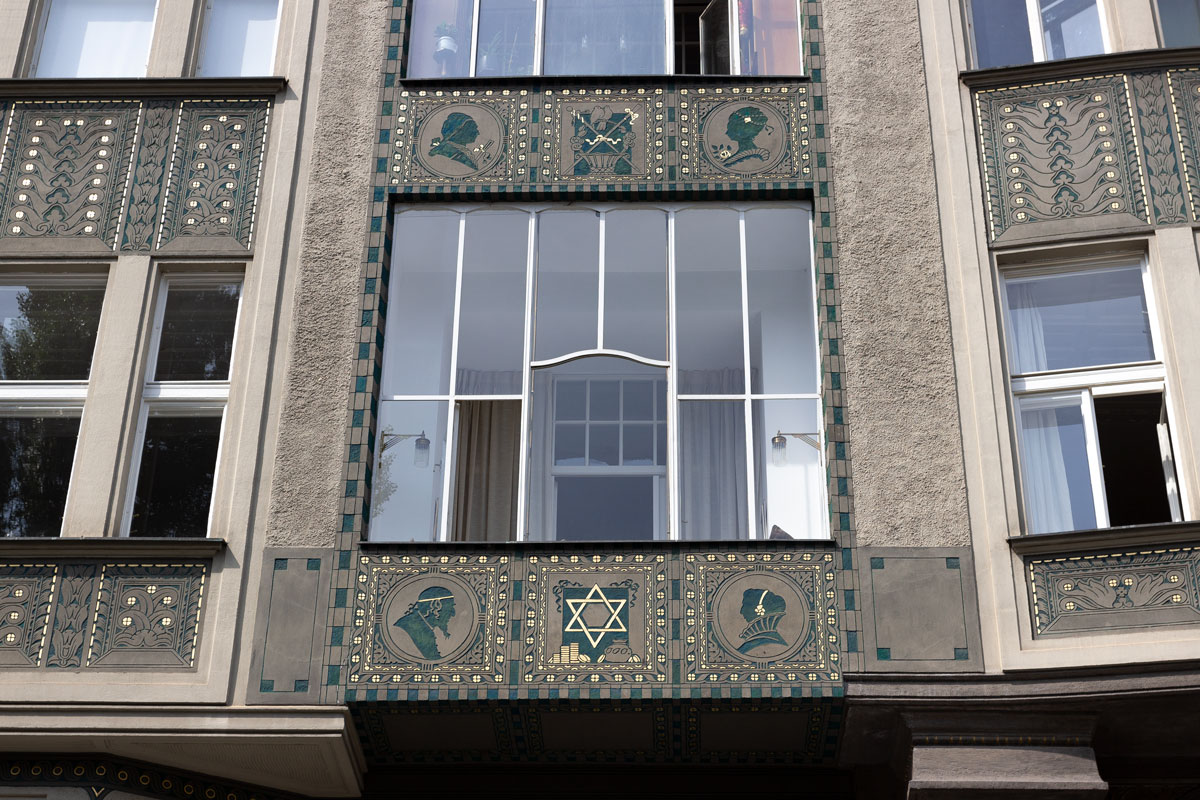
It so happened that the income from two-year US bonds became higher than the income from ten-year bonds. This simply cannot be: the longer you invest your money, the higher income you should get. If it turns out the other way around, then it means that investing money for many years becomes risky. The market, this collective mind, is expecting some important event in the near future.
Economic forecasts are like astrology. Our perception is such that we connect random dots on stock charts into lines, triangles and waves, much like the ancient Greeks connected stars into constellations. Economists read the same books, so they see similar “stock constellations” and make the same predictions. Politicians, businessmen and ordinary people change their behavior, adapting to these forecasts. Therefore, any sensational news can cause panic and actually trigger an economic collapse. Thus, forecasts fulfill themselves.
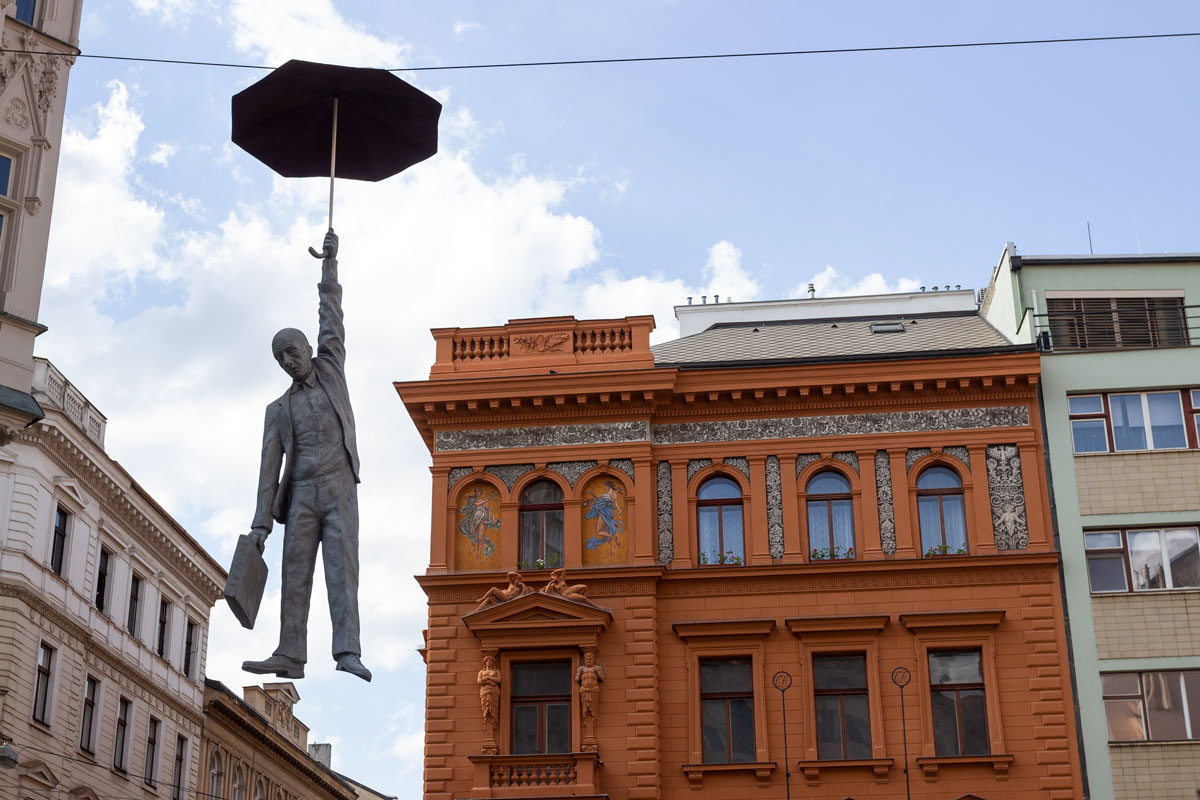
I was contemplating this while walking around Prague Castle — an old castle on top of a hill from where you can see the whole city.
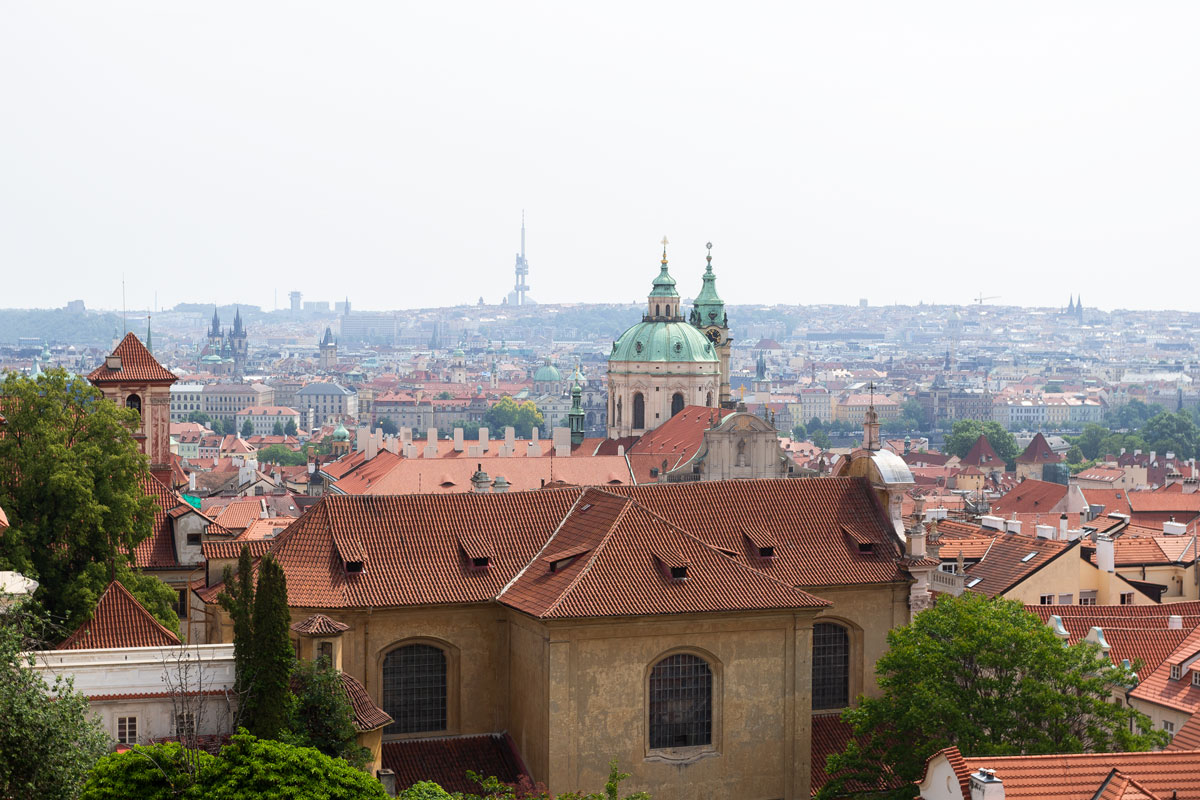
Suddenly there was a notification that the entire Russian government had resigned. The cozy Medvedev was replaced by the unknown Mishustin. The power transition had been talked about for a long time, and now it has begun while I was in another country.
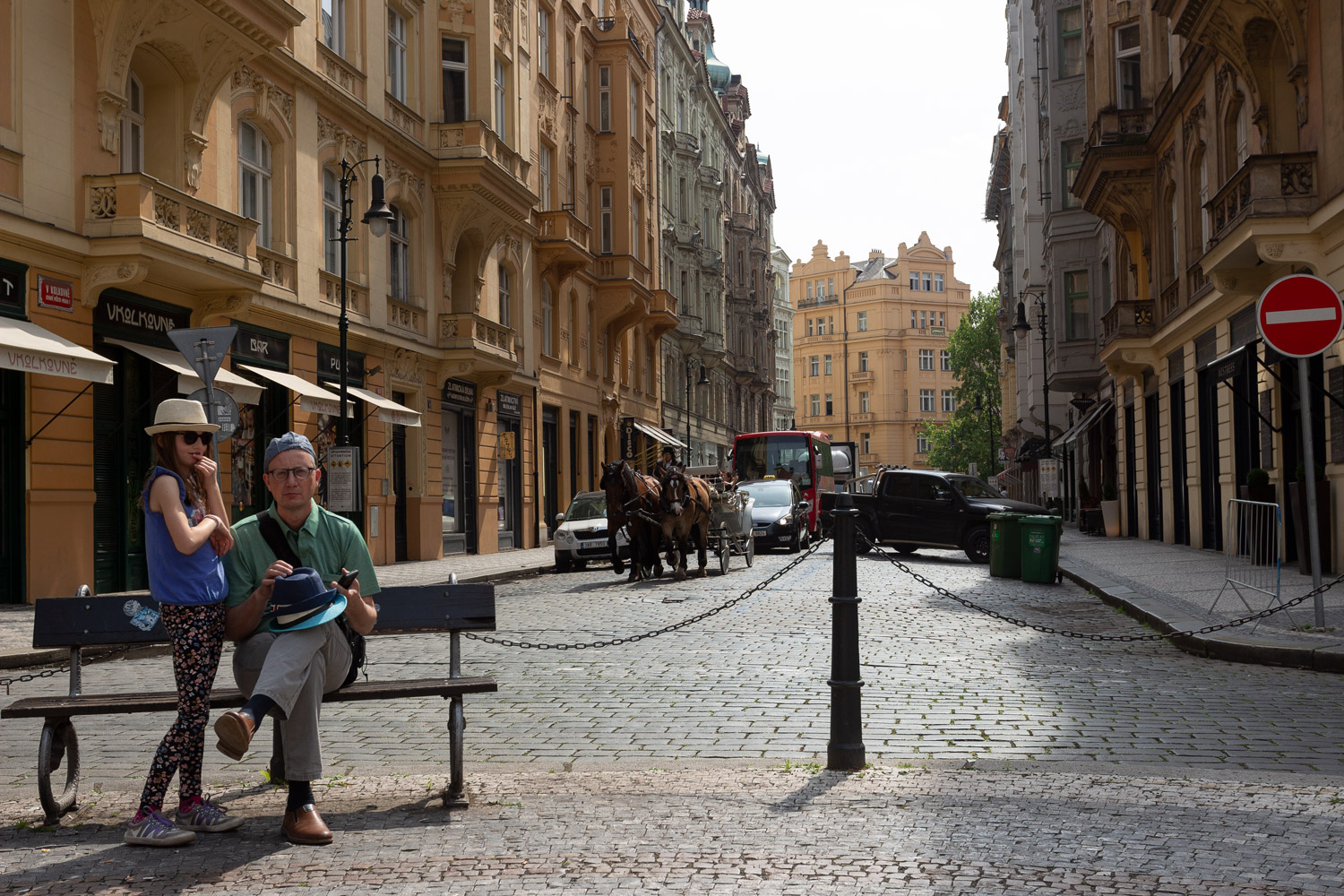
The news caused concern. Upon learning about it, I quickly walked to the hostel, opened the exchange and bought dollars.
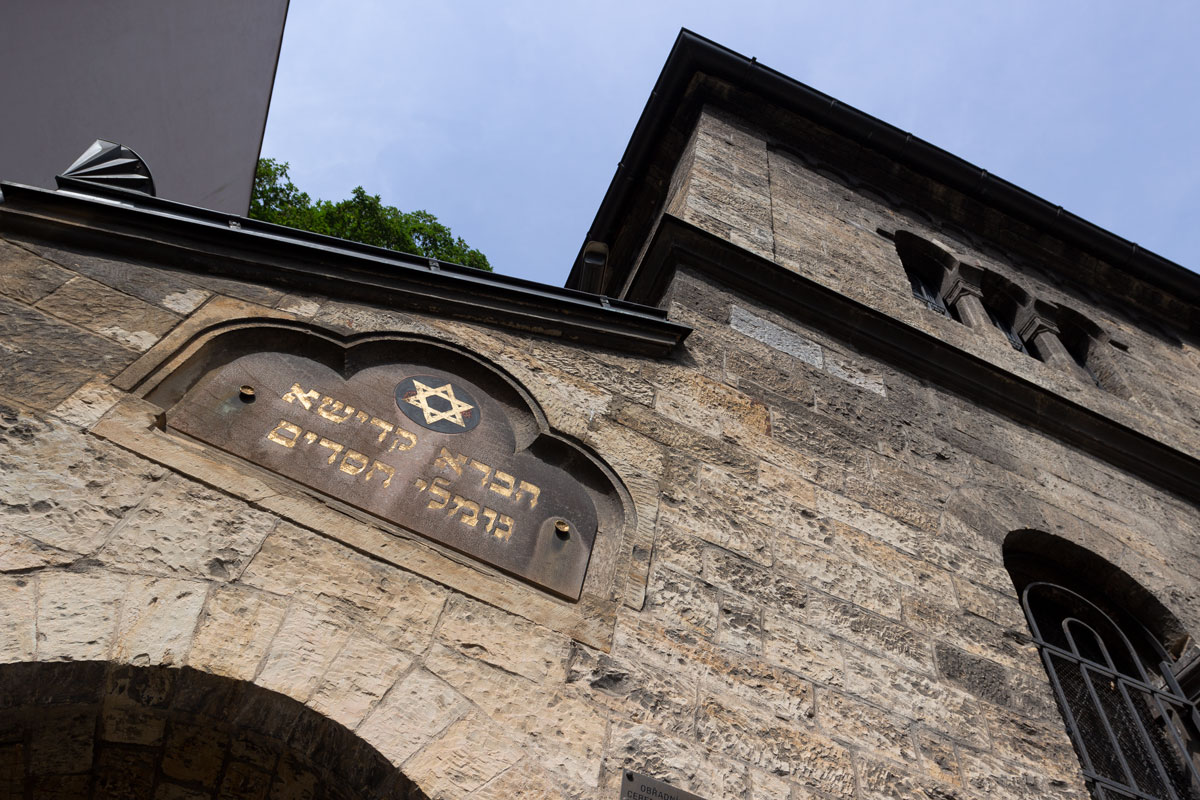
I spent the whole day sitting and reading news, expecting a sharp fall of the ruble. But nothing happened. The market did not react. “In this country, everyone is already accustomed to everything,” I thought and closed my laptop.
Later in January, rumors began to spread around the world about some new virus found somewhere in a remote Chinese province. Nobody knew yet that the whole of China would be closed for quarantine, although oil had already started to quietly drop in price.
News about the virus began to sound more and more often, but I decided to read about it for the first time only in early March when Sasha returned from France and went into a two-week quarantine. He was even afraid to take out the trash, and his entire balcony was piled up with stinky bags. It was very funny, but every day events became less and less funny: an epidemic began in Italy, borders with China were closed, the US stopped issuing visas, and all passengers were scanned with thermal sensors. A strange tension was growing in the world, and stock charts were turning red.
Perhaps the world would have gradually dealt with the coronavirus, quotes would have smoothly declined, but suddenly out of nowhere, the main newsmaker of modern times appeared on the scene: Russia.
She appeared and said: how come there is suddenly a global catastrophe in the world, and we are not participating in it? And she organized such a concert that even those sick with pneumonia raised themselves closer to the TVs on their beds.
World of Kafka
In his jacket for 250 thousand rubles, Igor Sechin long ago began to resemble the Michelin Man.

While other billionaires from the Forbes list were racking their brains, Sechin was pumping oil. And on the eve of March 8th, a brilliant plan was born in his oil-filled head: at a meeting of other oil leaders, Sechin decided to put the Saudi princes down, stood up from the table and sent them packing.
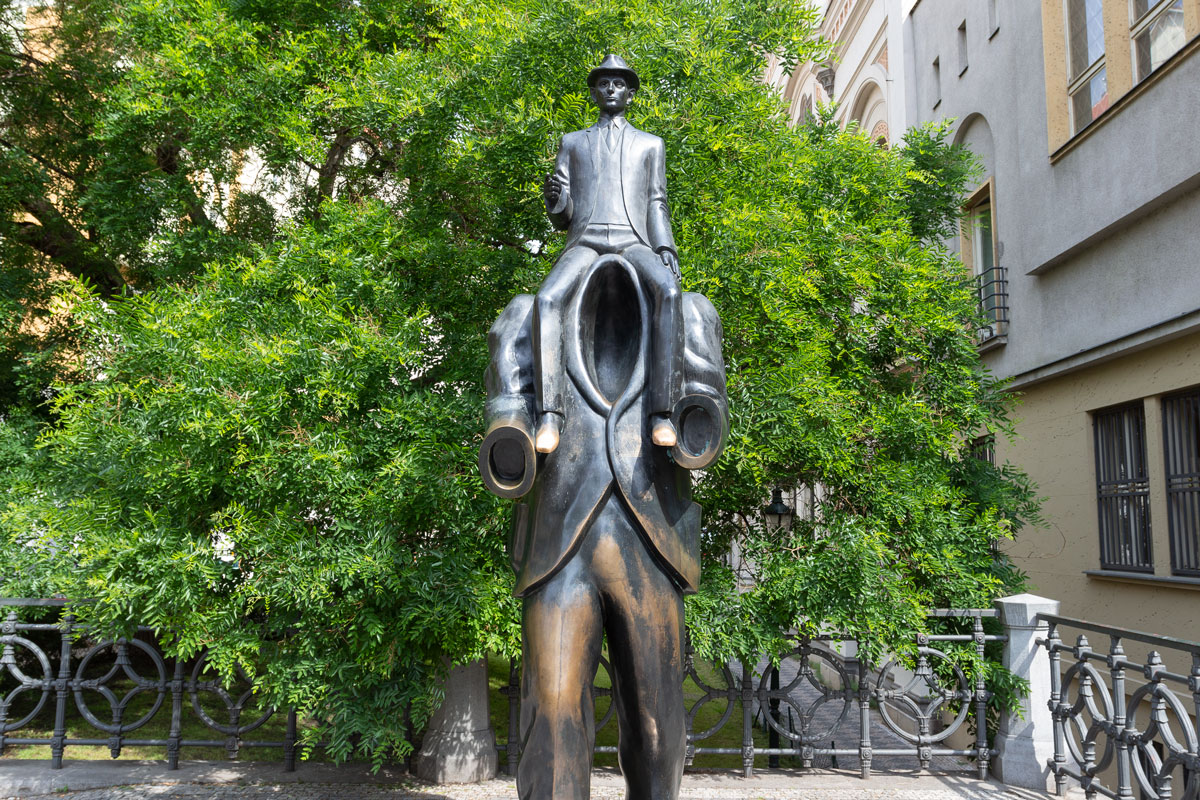
However, the Arabs had not only oil in their heads but also a sense of their own dignity. Unaccustomed to such treatment, instead of leaving, the Saudis went to the oil valve and first lowered the oil, then Sechin, and then the Acting Mayor of Russia, Vladimir Putin.
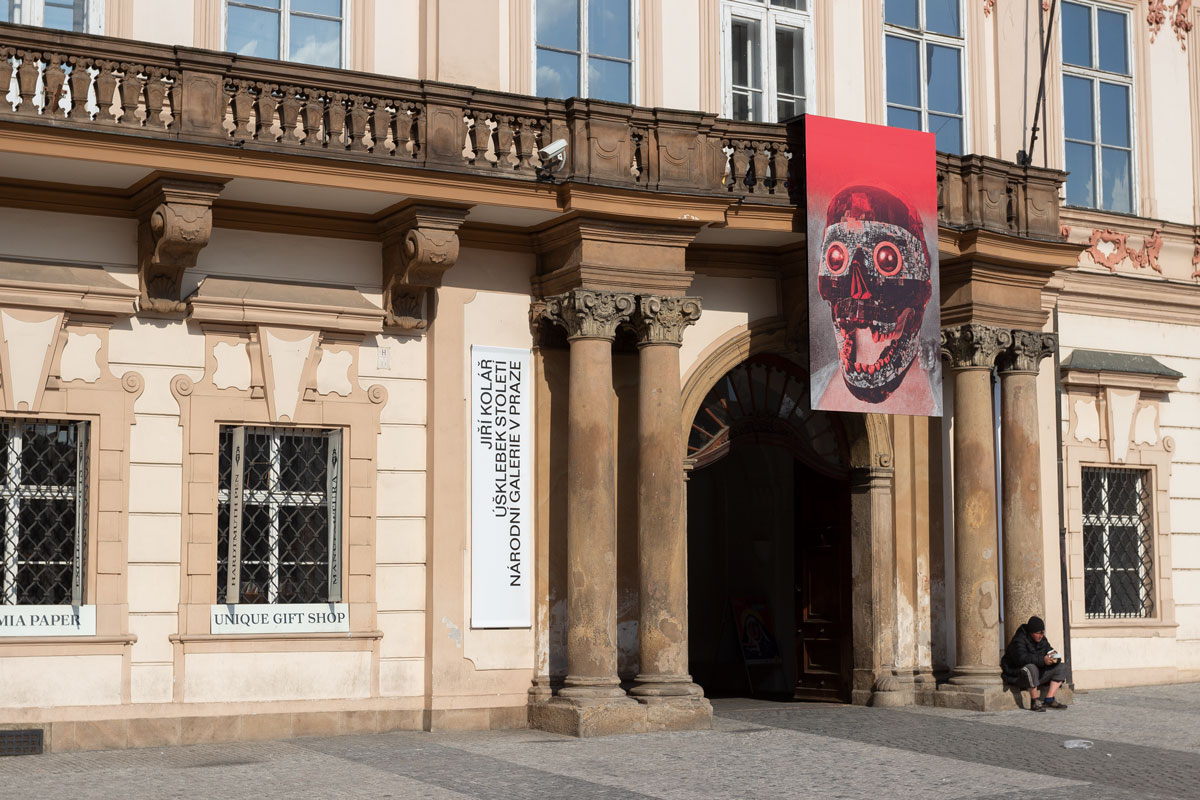
All hell broke loose. They say that American company stocks have not fallen at such a rate since the Great Depression. Even Donald Trump was distracted from his quarrels with China, choked on a piece of stuck-up shale in his teeth and rushed to make peace between Russia and Saudi Arabia.
The growing “strange tension” in the world turned into a real panic and did trigger an economic collapse, which had been talked about in stock horoscopes for so long.
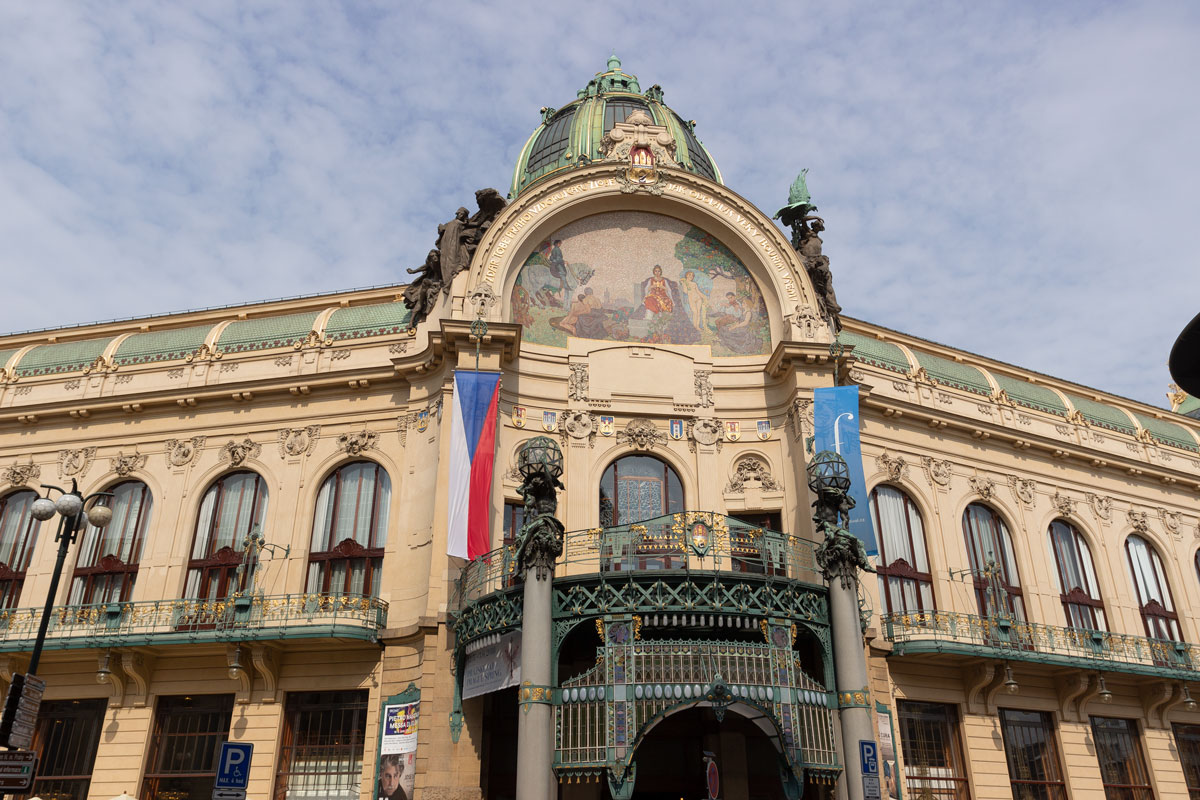
At that time Russia celebrated March 8th. Men spent their last money on flowers and iPhones, women got rid of unwanted assets at beauty salons, and Vladimir Putin, who maintained sexual neutrality, prepared a referendum to reset the presidential term.
Until now, it is still unclear what happened to the government. In Russia, people are used to the fact that all important matters happen personally by the order of the president, but it seems that this time a different force acted in the Kremlin. The president, in this situation, seemed like a hostage who was decided to be sent to an unknown State Council and who urgently came up with how to maintain his power. Someday we will know everything, but in the spring of 2020, instead of resetting his term, Putin almost reset himself.
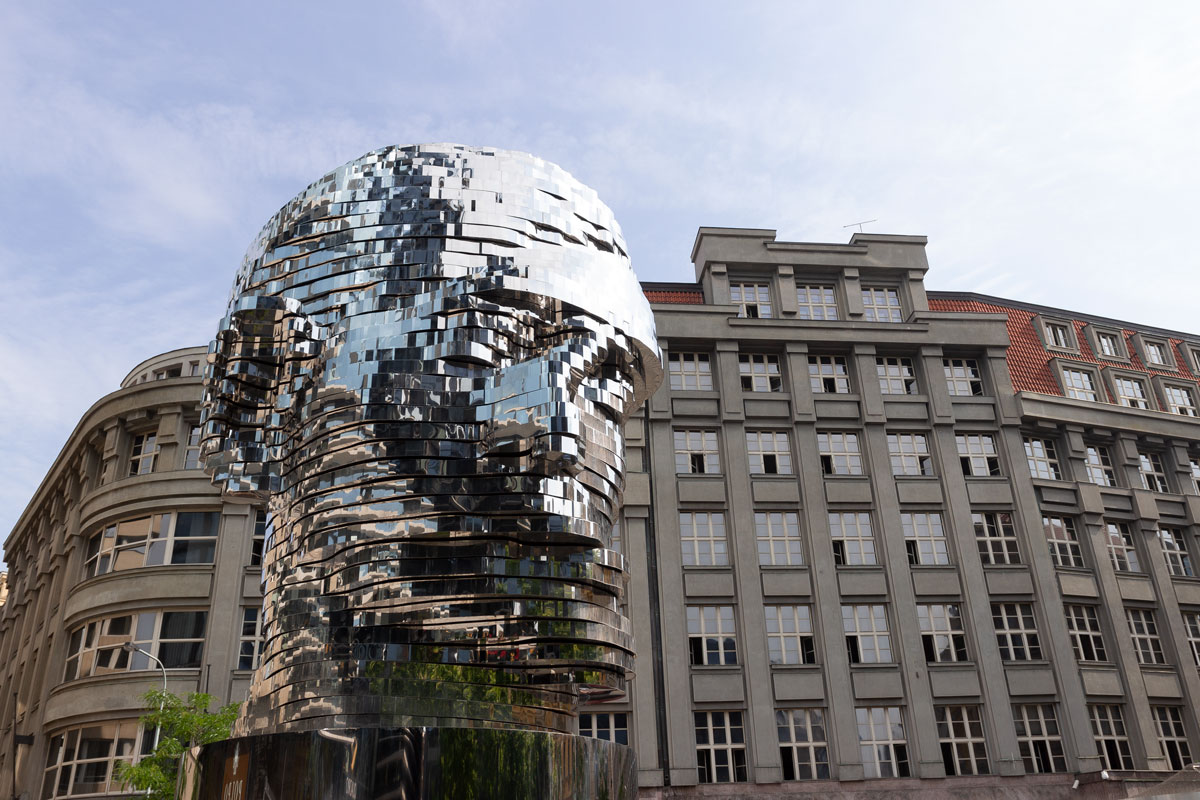
The oil-virus melodrama was gaining momentum.
Deputy Sergey Katasonov decided to make a name for himself in history. Upon returning from France, where he had no residency or ever had it, instead of self-isolating, Katasonov went to work at the State Duma. When this became known in the press, the liberal public rose from their couches and whispered, “What if?”.
The deputy was not found to have the coronavirus, but in any case, it was the best initiative of the LDPR in the entire history of Zhirinovsky’s existence.
At that time, Putin had not fully understood that he had entered a new world, so he decided to show his courage as a Chekist for the last time and went to the hospital at Kommunarka, where all coronavirus patients were being sent. He went there in a protective chemical suit, but for some reason, decided to take it off in the elevator and shake hands with the chief doctor. Apparently, he had always believed that doctors never get sick.
The chief doctor turned out to be a traitor to the motherland and treacherously fell ill a week after the meeting, causing the liberal public to drop their pensions from their eyes and rise from the couches for the second time and whisper, “What if?”.
Such a turn of events even made the main cockroach of Russia, Dmitry Peskov, twitch his mustache, and he stated that Putin is absolutely healthy, which finally reassured everyone, “Well, he’s definitely sick.”
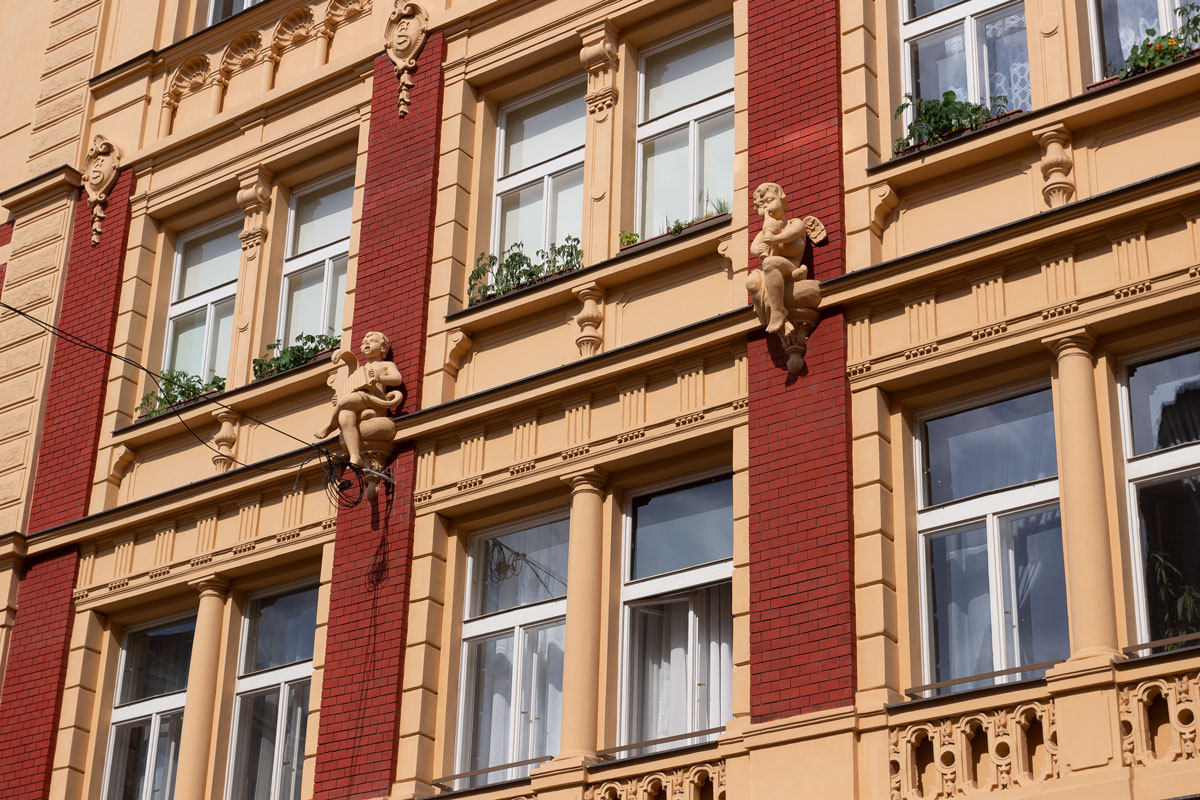
By the end of March, the scale of the impending disaster had become clear, so all of Orthodox Russia gathered around their televisions waiting for the president’s address. When Putin finally appeared on the screen two hours late, even the author turned on the broadcast and sat down to watch the nation’s leader with the words, “Well, come on, guarantor, sort it out.”
And the guarantor really skillfully sorted everything out, declaring the entire month as an unpaid week with preserved wages.
After this meeting, Putin disappeared somewhere, and instead, Sergei Sobyanin appeared, who finally finished everyone off by decreeing as the mayor of Moscow, sending all of Russia into voluntary self-isolation with a fine for its violation.
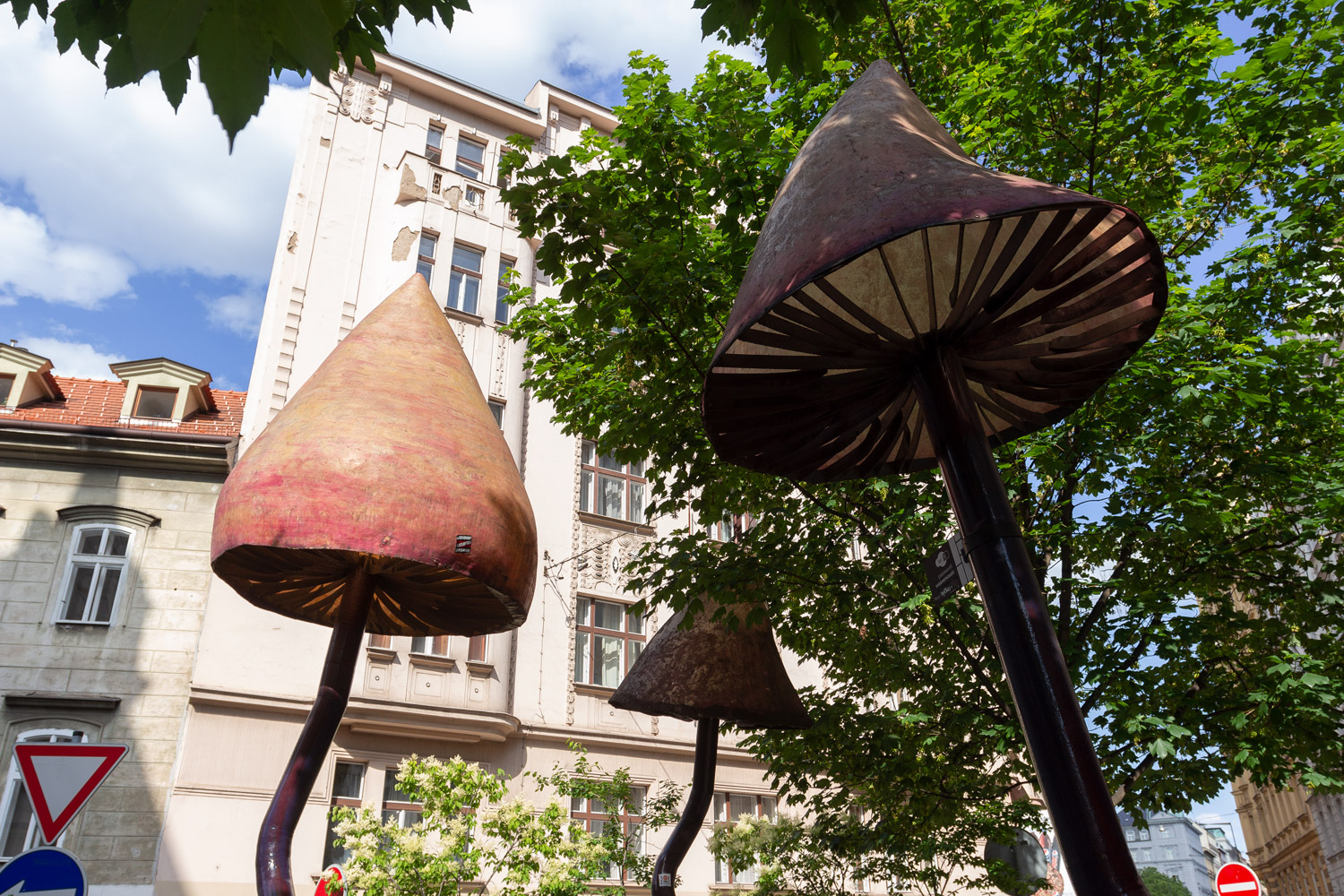
The next time Putin was seen at a meeting with entrepreneurs, but no one watched it anymore because they were following the actions of the Moscow President. And it was a mistake because at that meeting, Putin coughed, sniffled, and sat weakly in his chair. The Kremlin’s savvy political technologists quickly replaced this interview with a new one, where symptoms of coronavirus were neatly covered up by symptoms of another illness, advising Putin to talk about the liver problems that had long been bothering him.
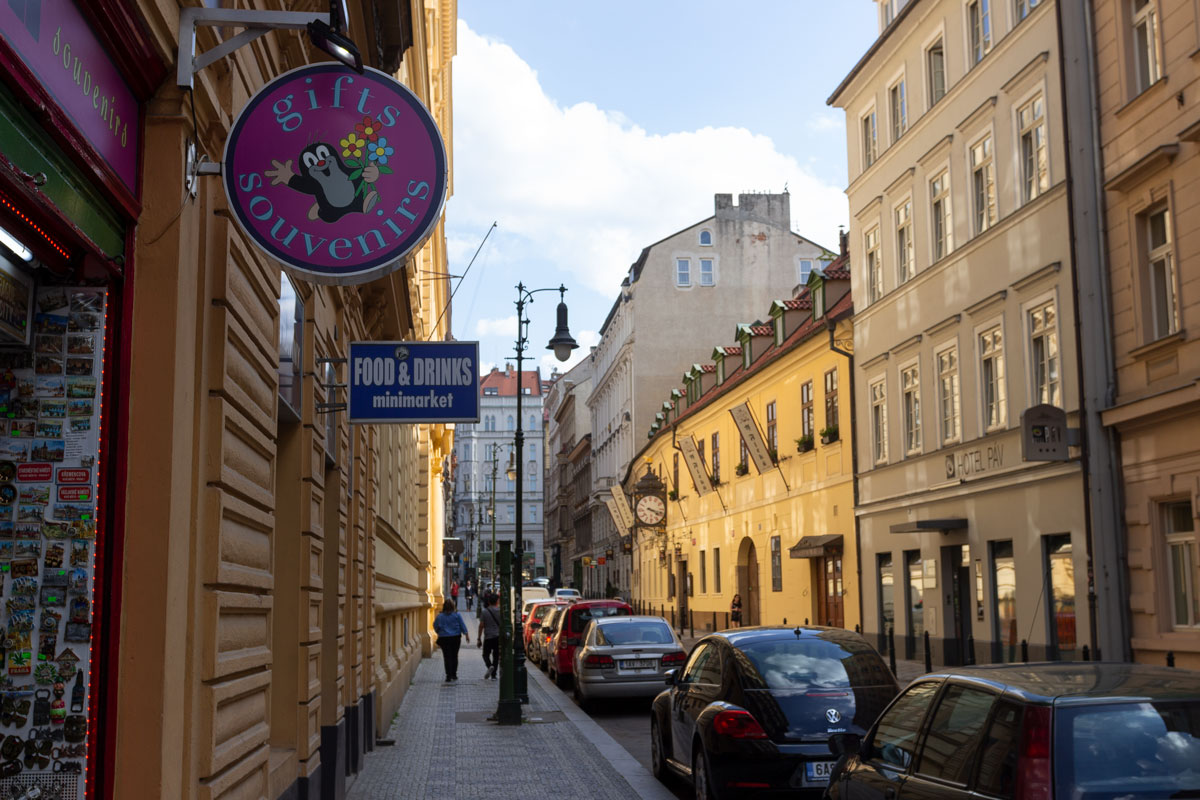
By mid-April, the Mayor of Russia, Sobyanin, became even more enthusiastic and invented digital passes to leave the house, but did not have time to invent digital brains for the police, thereby causing queues at the metro entrance and adding a thousand or two coronavirus patients.
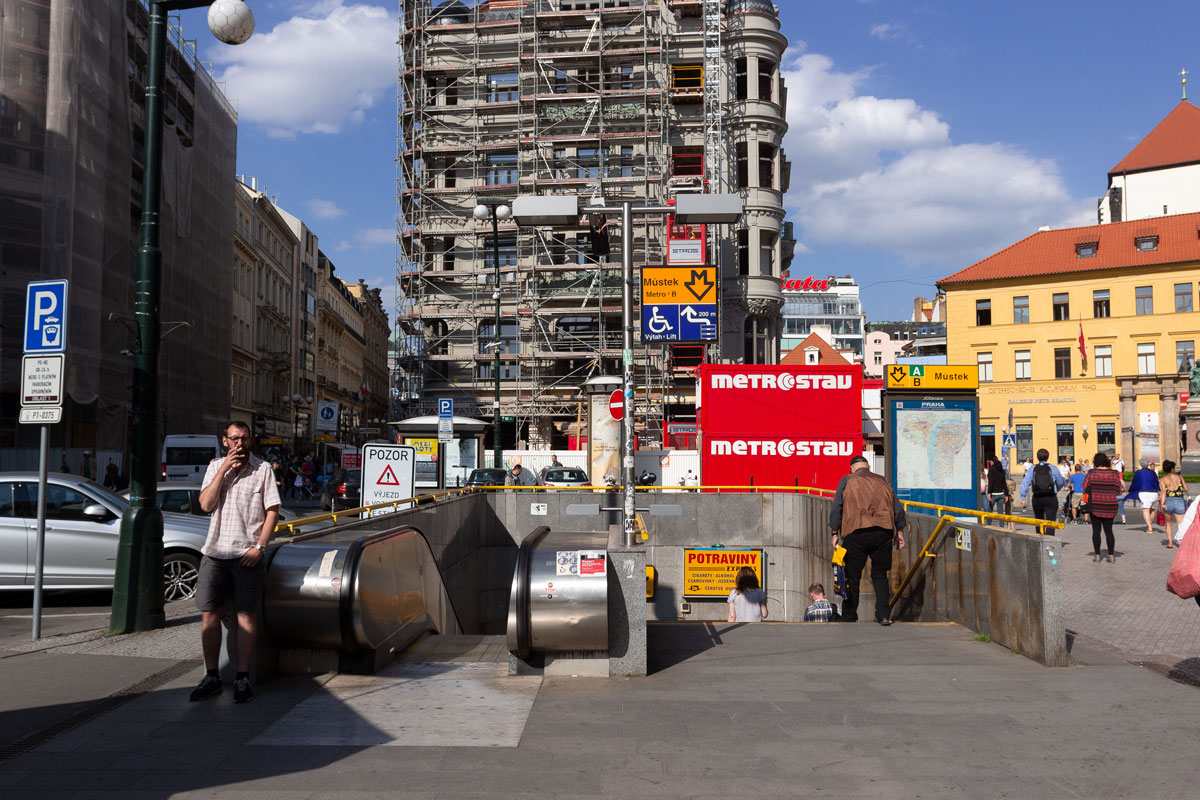
Finally, forgotten economists joined this whole saga that began at the start of the crisis. It turned out that doctors did not understand anything about epidemic statistics, but stock traders were very good at counting — they even taught them how to do it once. The parade of economists did not last long: oil, which had slowly been falling for the past two months, reached zero and then became worth minus $37 per barrel. Now it turned out that economists did not understand anything about negative oil prices, but doctors understood it wonderfully well!
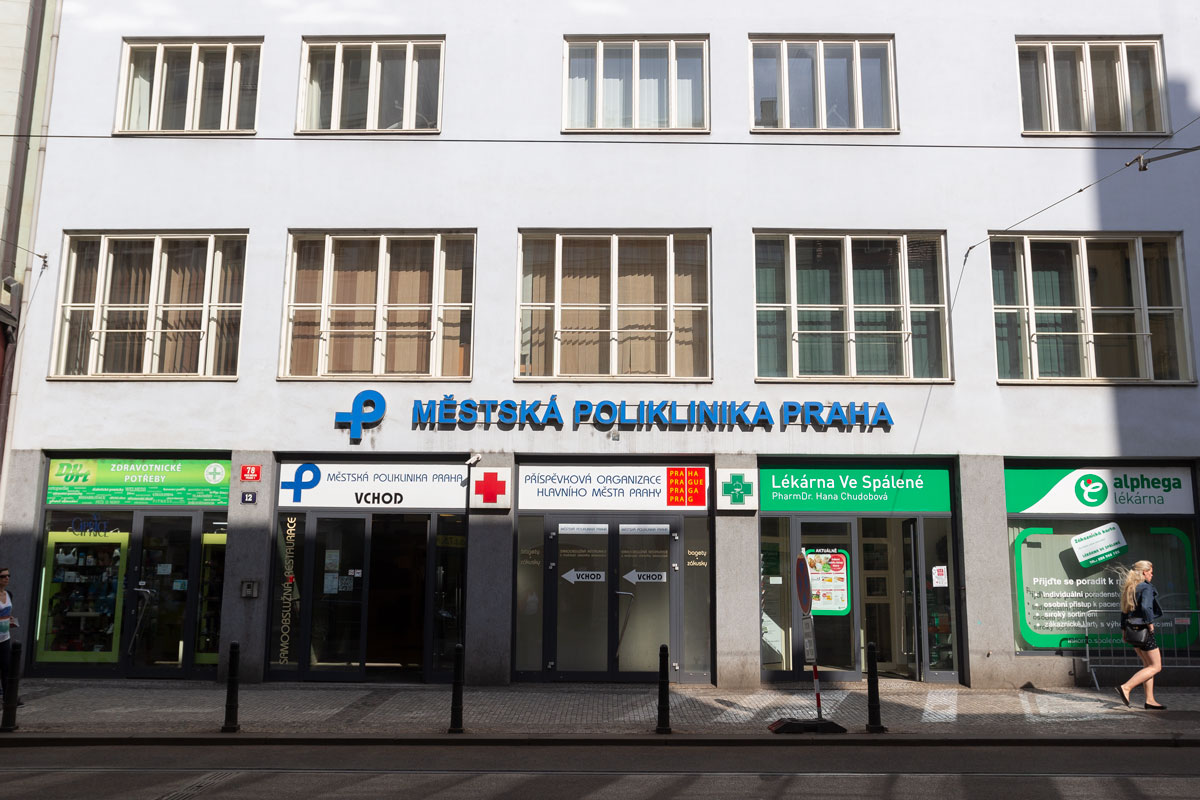
The battle of psychics has begun all over the world. Who will be the first to predict the end of the epidemic?
The artificial intelligence of Google, the neural networks of Amazon, and the virtual assistant of Sberbank clashed in a battle for the best prediction of the peak of the disease. When it turned out that there could be no peak in the epidemic, they started predicting a plateau instead. When it became clear that even the plateau was not being predicted very well, everyone gave up and went to celebrate Victory Day: Russia came in second place in the world in terms of the number of sick people, as always losing only to the damned America.
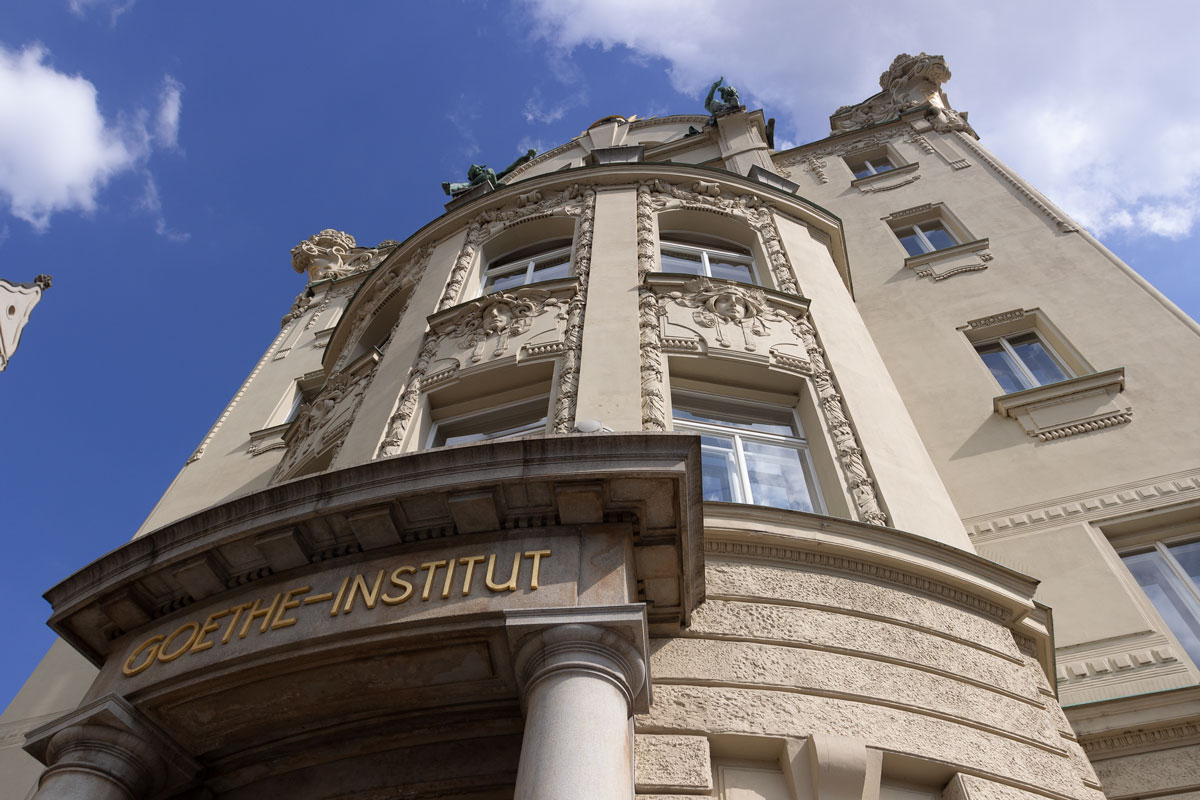
The only plateau that has actually been reached in Russia is the one in Putin’s head, who emerged after the May holidays and on the day of the record increase in sick people declared that everyone would go to work tomorrow.
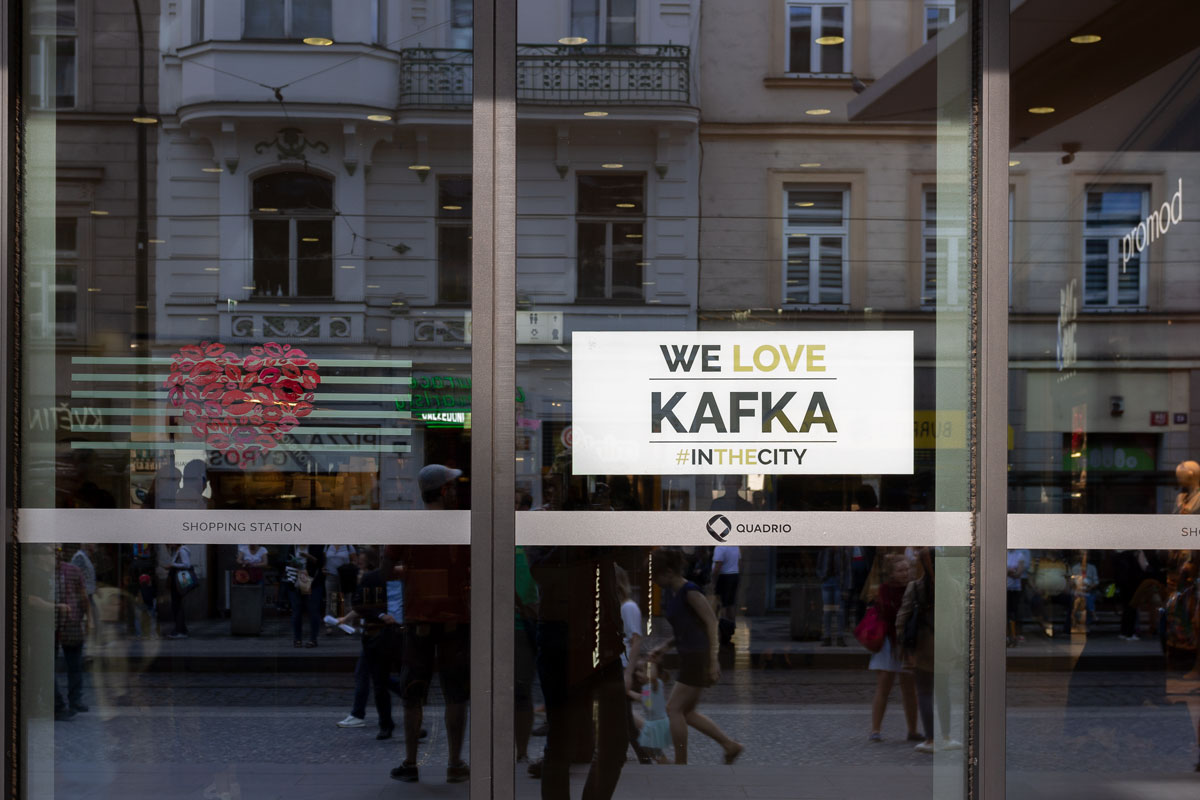
However, they didn’t even write about it in the news: the mayor ordered everyone to stay at home until June. But it seems that the epidemic has really begun to decline.
I want to Czechia
I am writing this story while being at home, but mentally I am still strolling through Prague. What a beautiful country Czechia is after all. There is so much interesting things here. Antique shops:
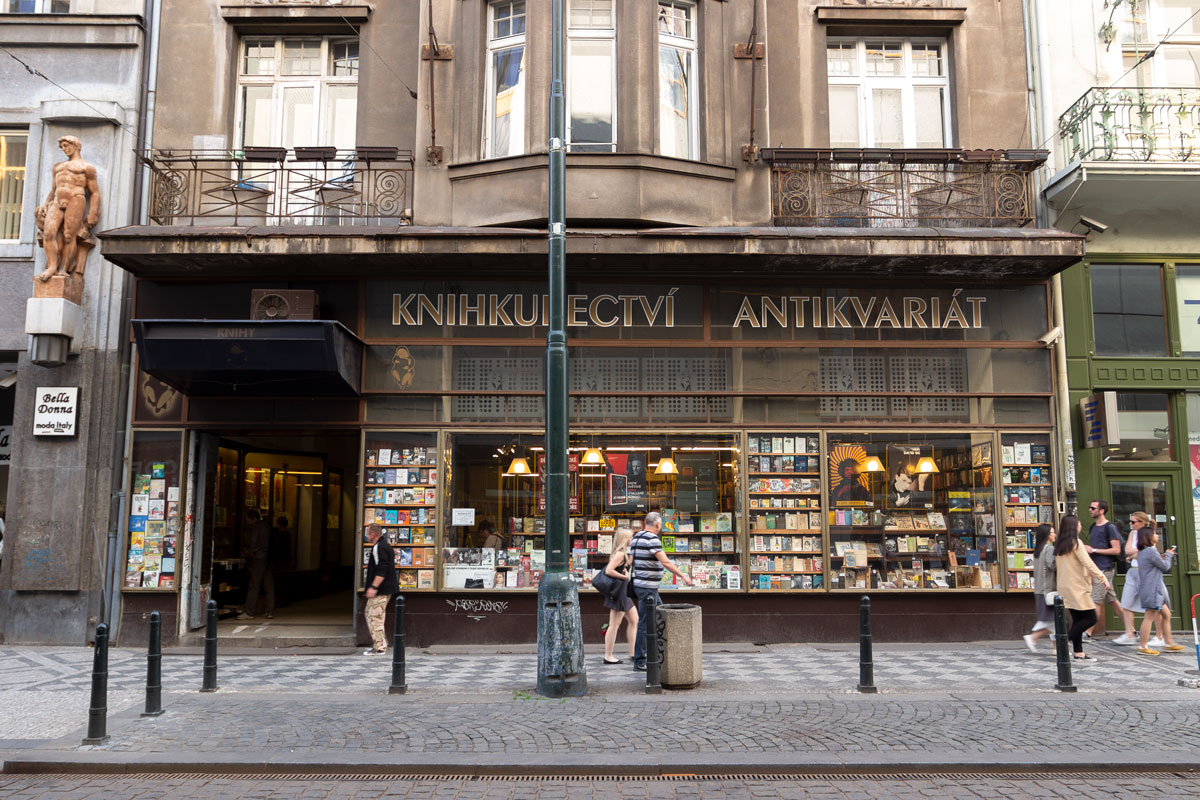
Historical architecture:
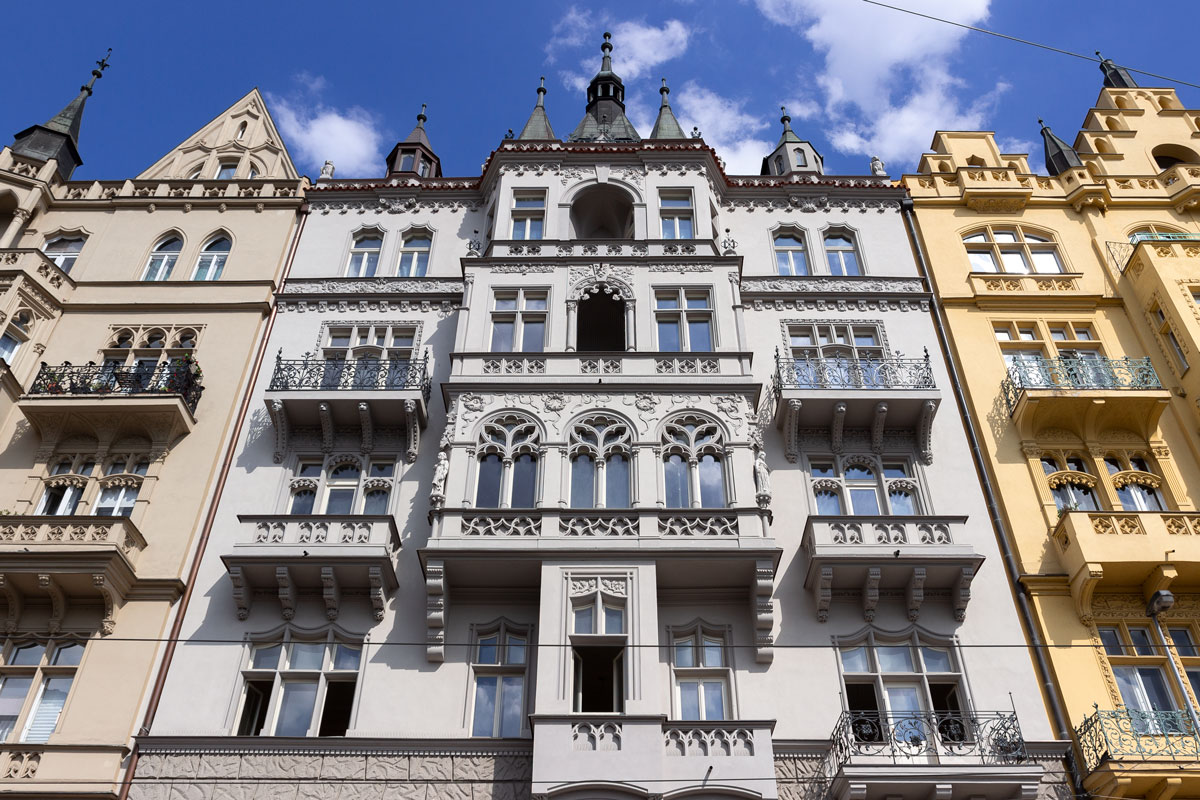
Modern architecture:
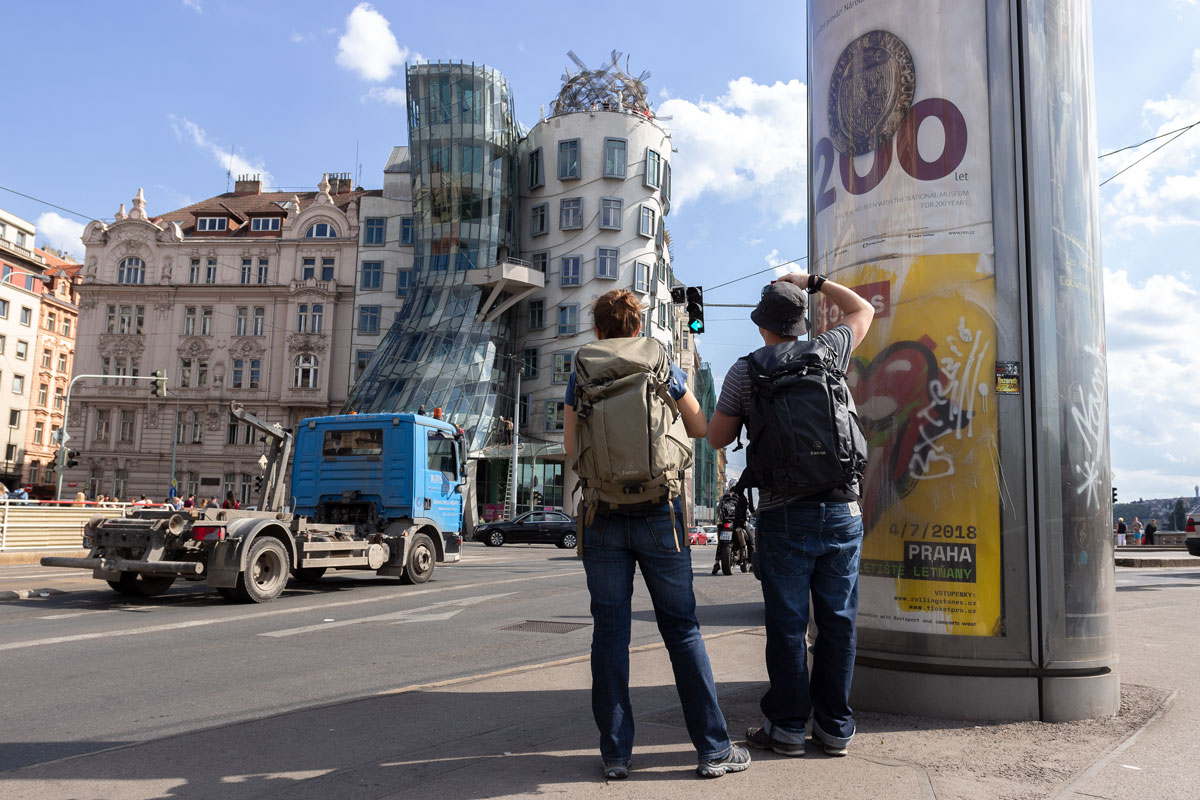
Monuments:
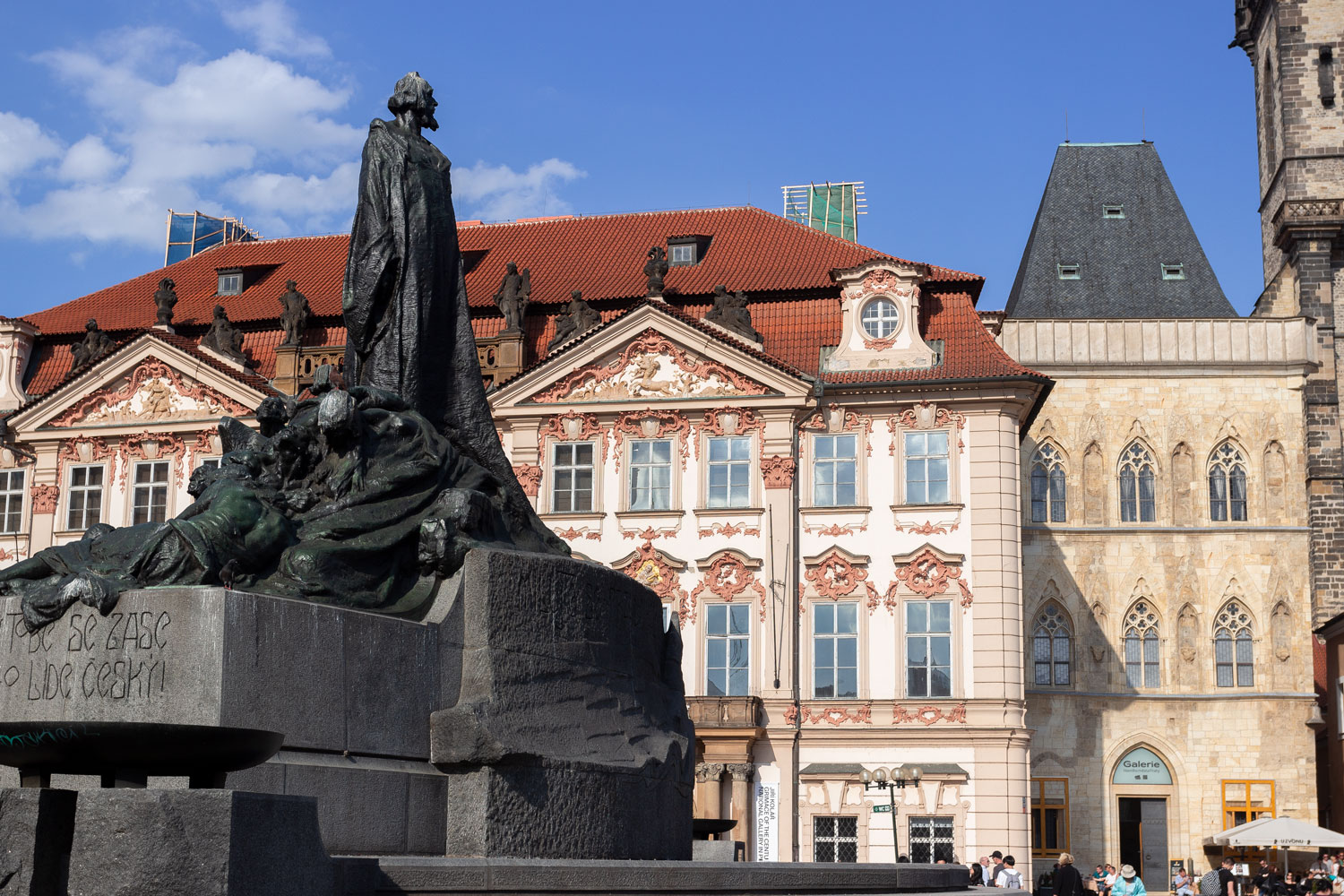
Beautiful, green streets:
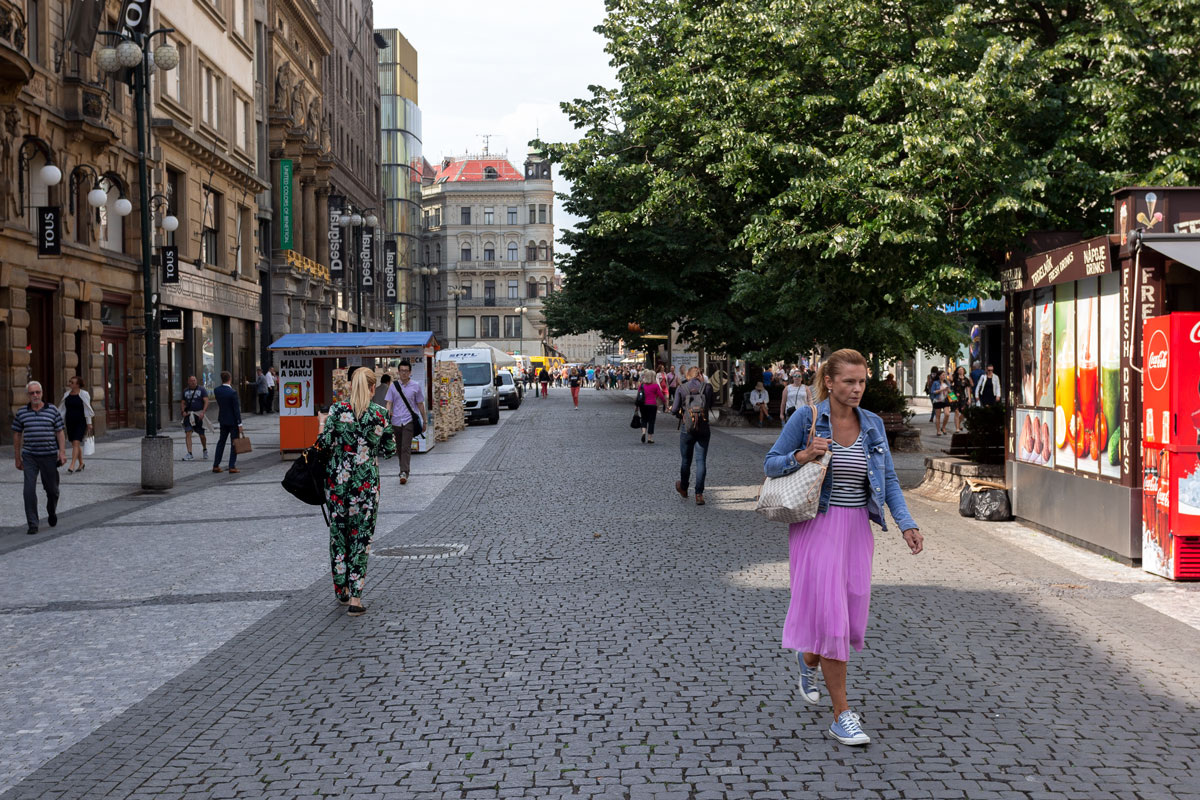
Delicious restaurants:
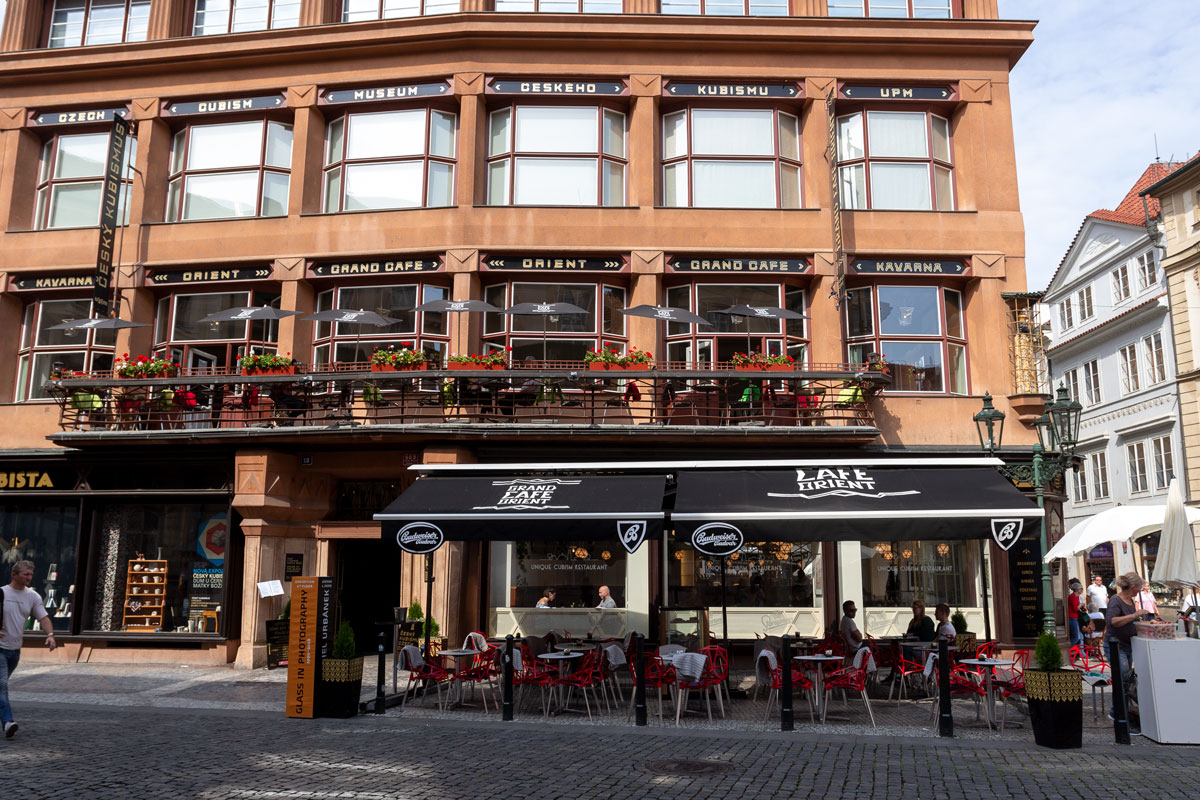
Beauty.
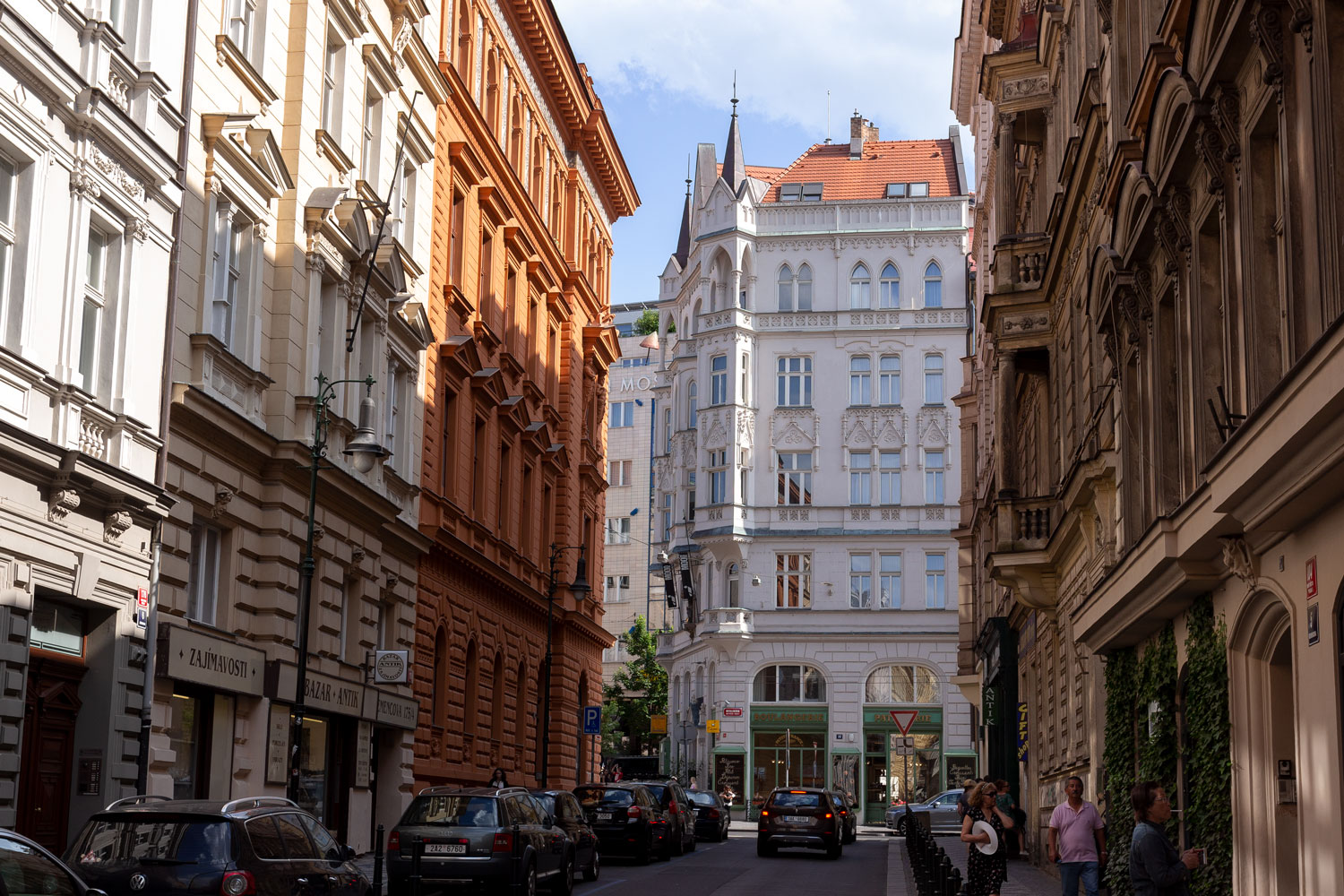
We still don’t know how long the quarantine will last. America is just starting to open up. In some European countries, you can already go for walks, cafes and restaurants are open. In Czechia, it seems like they’re already pouring beer and selling trdelnik.
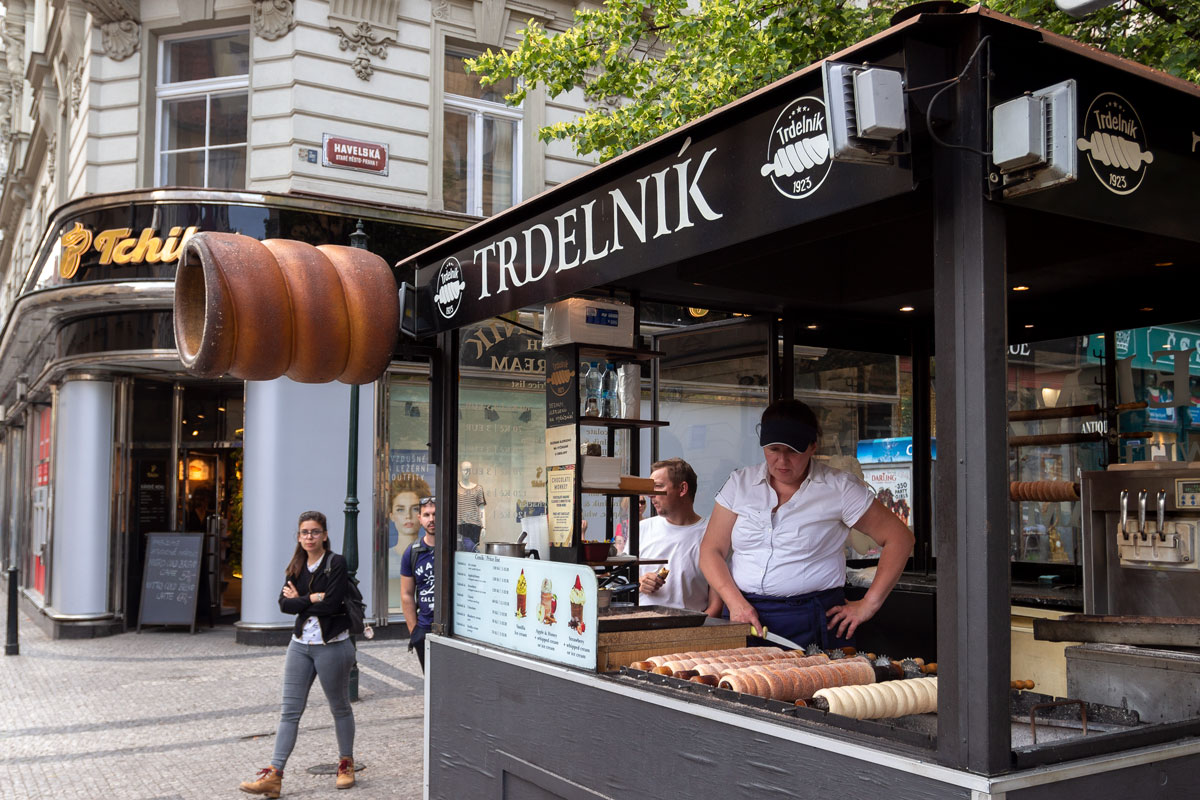
Meanwhile, in South Korea, Japan, and China, they have started to register cases again, and the world is already afraid of a second wave of the epidemic. Oil prices are falling again along with the stock market. In Russia, they say that the quarantine will begin to be lifted from June. But what will happen after?
The virus has claimed enough victims. But unemployment, bankruptcy, inflation — all of this is much scarier than the coronavirus. In wealthy America, 40 million people lost their jobs. European countries and the United States are pouring trillions of dollars into the economy, giving away money to anyone who wants it for free.
At the beginning of the epidemic, optimists thought that the virus would solve many problems. Stop trade disputes between America and China, end the war in Syria, pave the way for medical advancement. It seems that we have once again been too naive. Without waiting for a victory over the virus, Trump is starting a new phase of an economic war. Syria, with its tempting resources, continues to be torn apart.
What awaits Russia? We don’t even know what will happen to the world: should we expect insane inflation or a deflationary collapse? Will the European Union collapse? Will Trump be re-elected for a second term and will he introduce negative rates? The last time the world faced something like this was during the Great Depression. At that time, no efforts could bring America back to growth, socialism advanced in Europe, and Hitler skillfully took advantage of all of this. Only war resolved the economic problems of those years.
We are told about the price of human life. An economic catastrophe is justified by saving lives from the epidemic. But who can assess to what level of poverty will break out in the world? How many people will die because they were locked up at home, deprived of the opportunity to work and feed their families? When, where, from whom will the new executioner come and how will he use the results of the madness called Flatten the Curve? How will he re-evaluate human life this time?
I am writing this story from my home, but mentally I am nowhere — because the world is racing towards nowhere.
Definitely, I will come to Prague for the third time. Most likely, I will make my way to America and delve into the thickets of the Middle East. Hopefully, all in the same role of a free traveler. However, the new “columnar road to slavery” has already been laid, and we are still the same naive optimists.
End the Fed.
